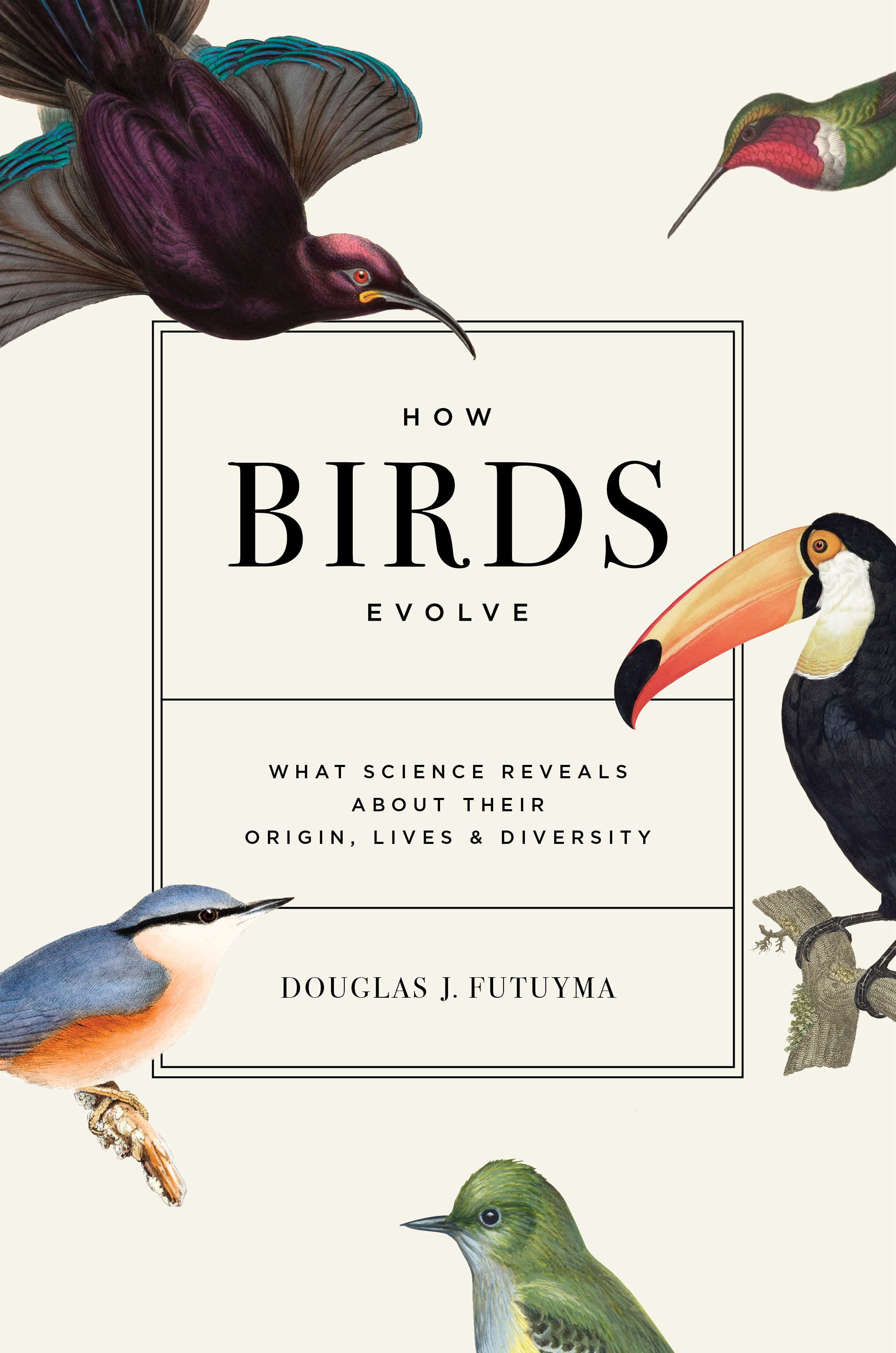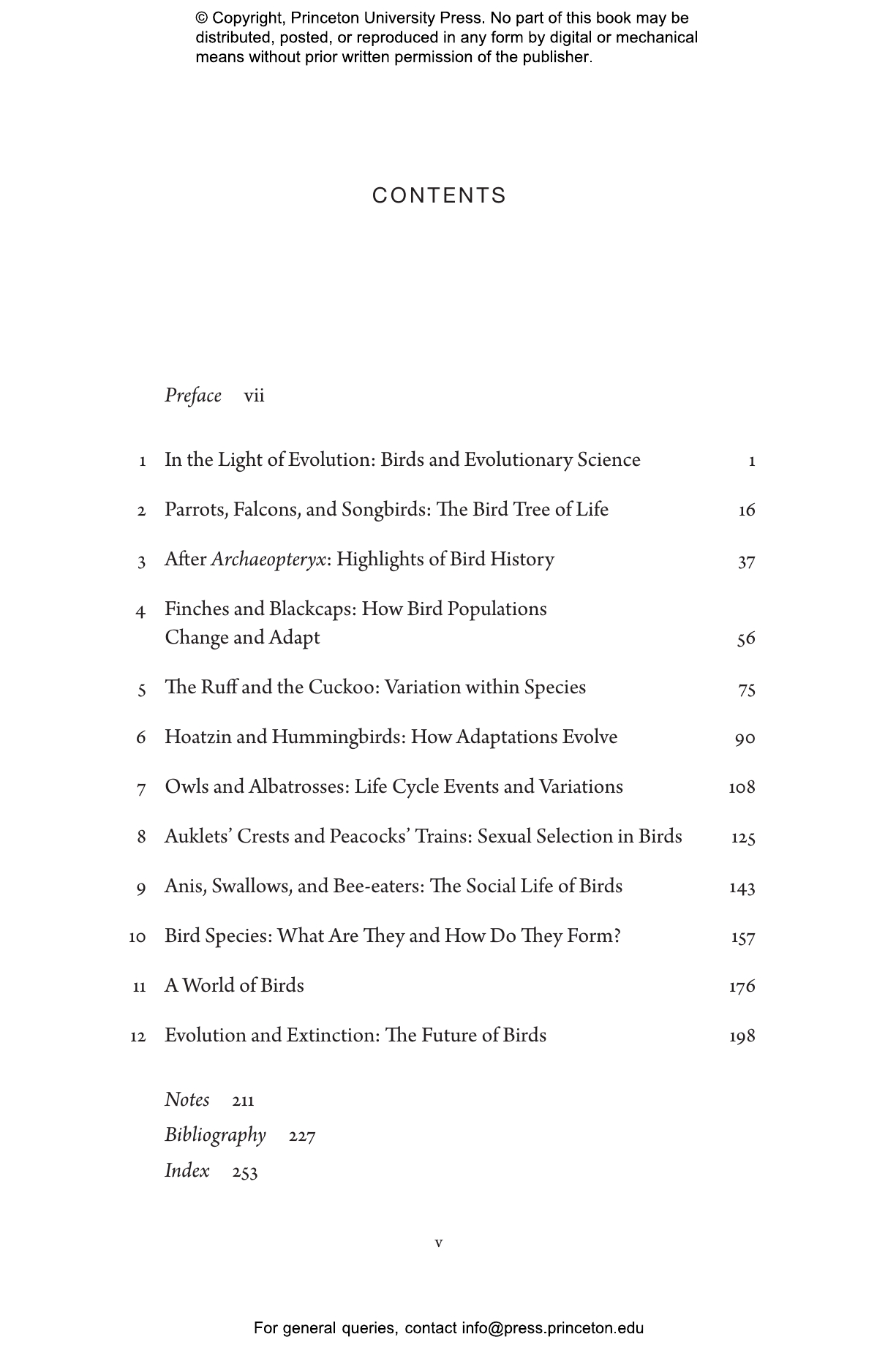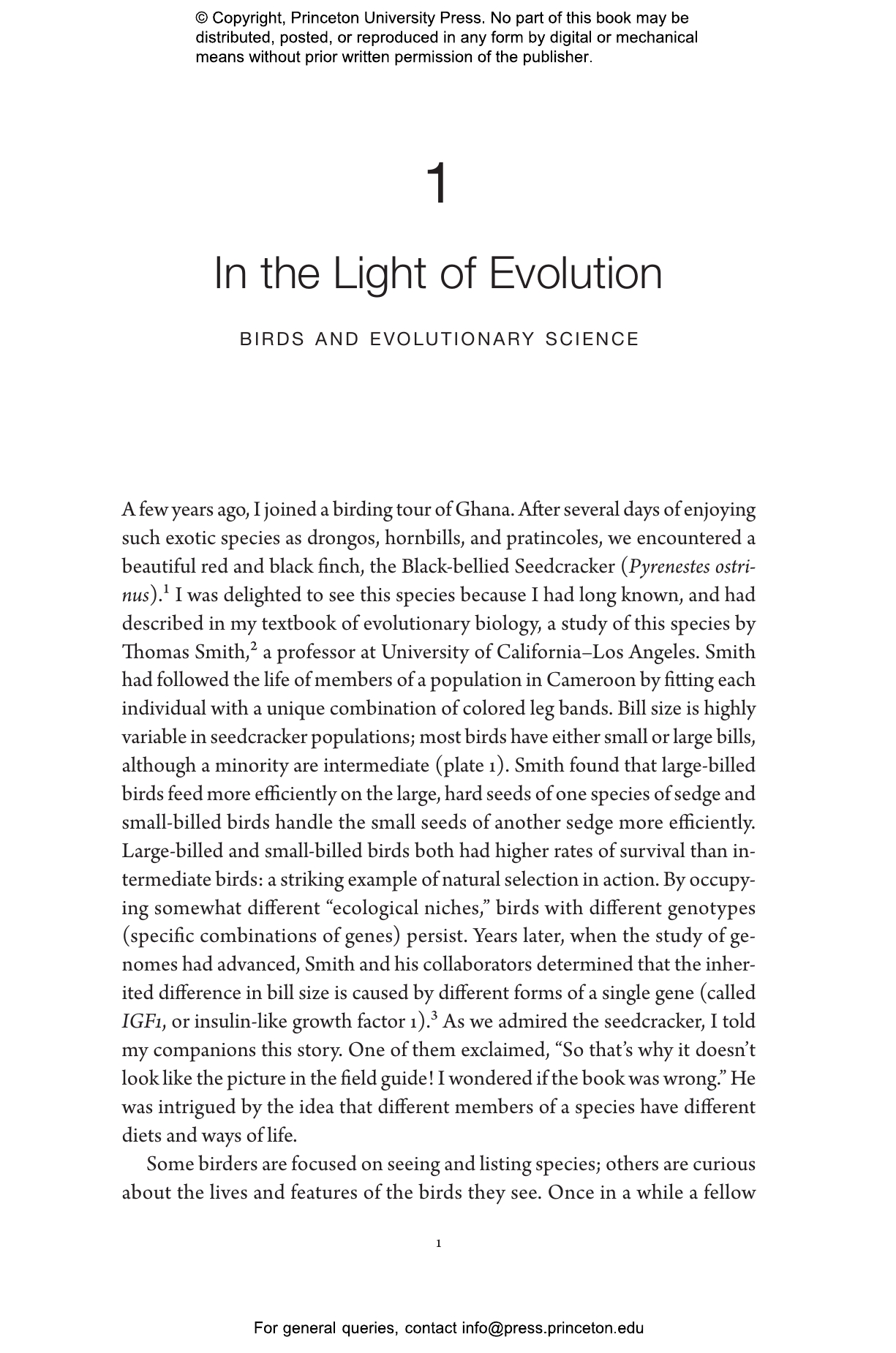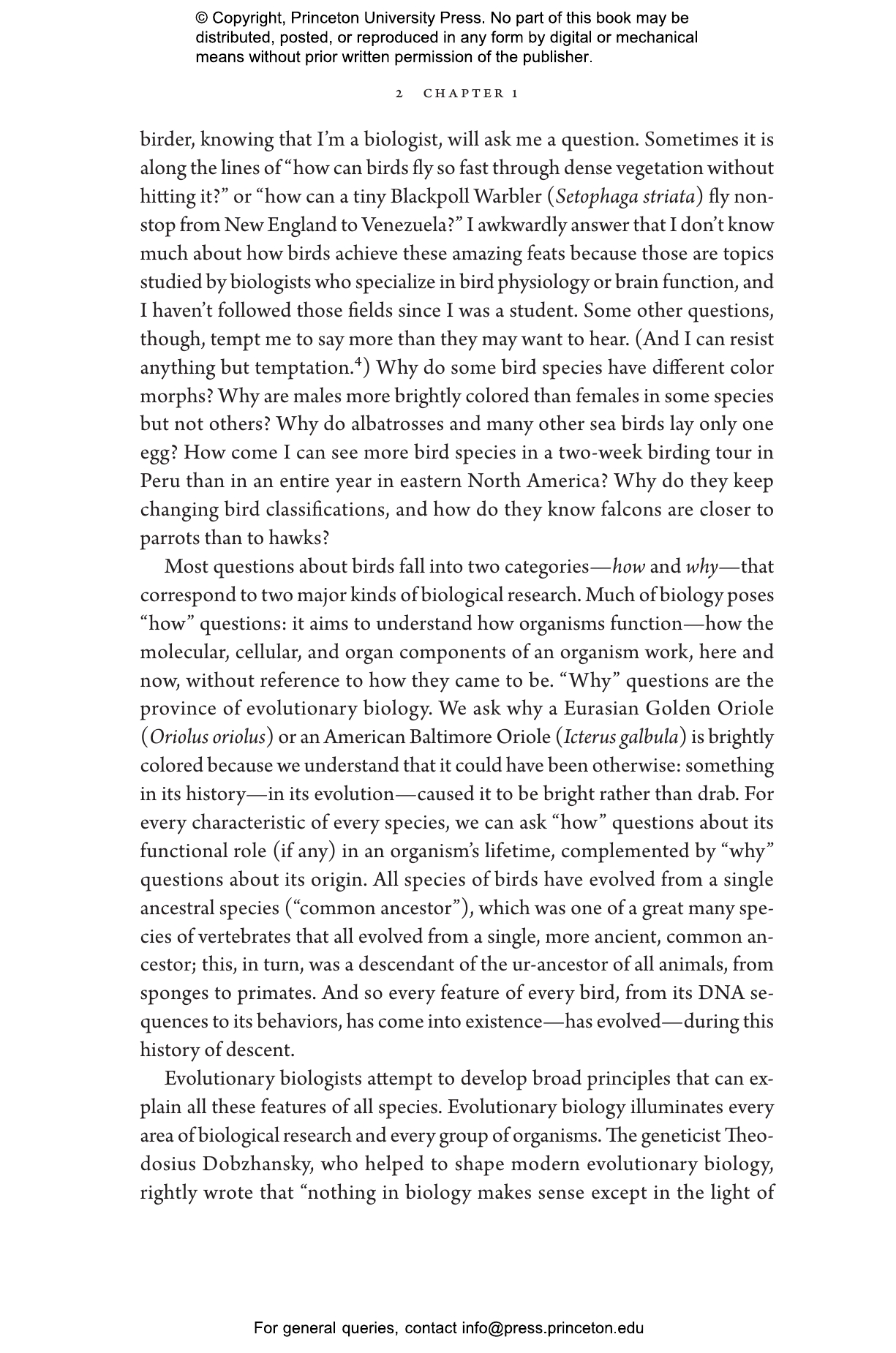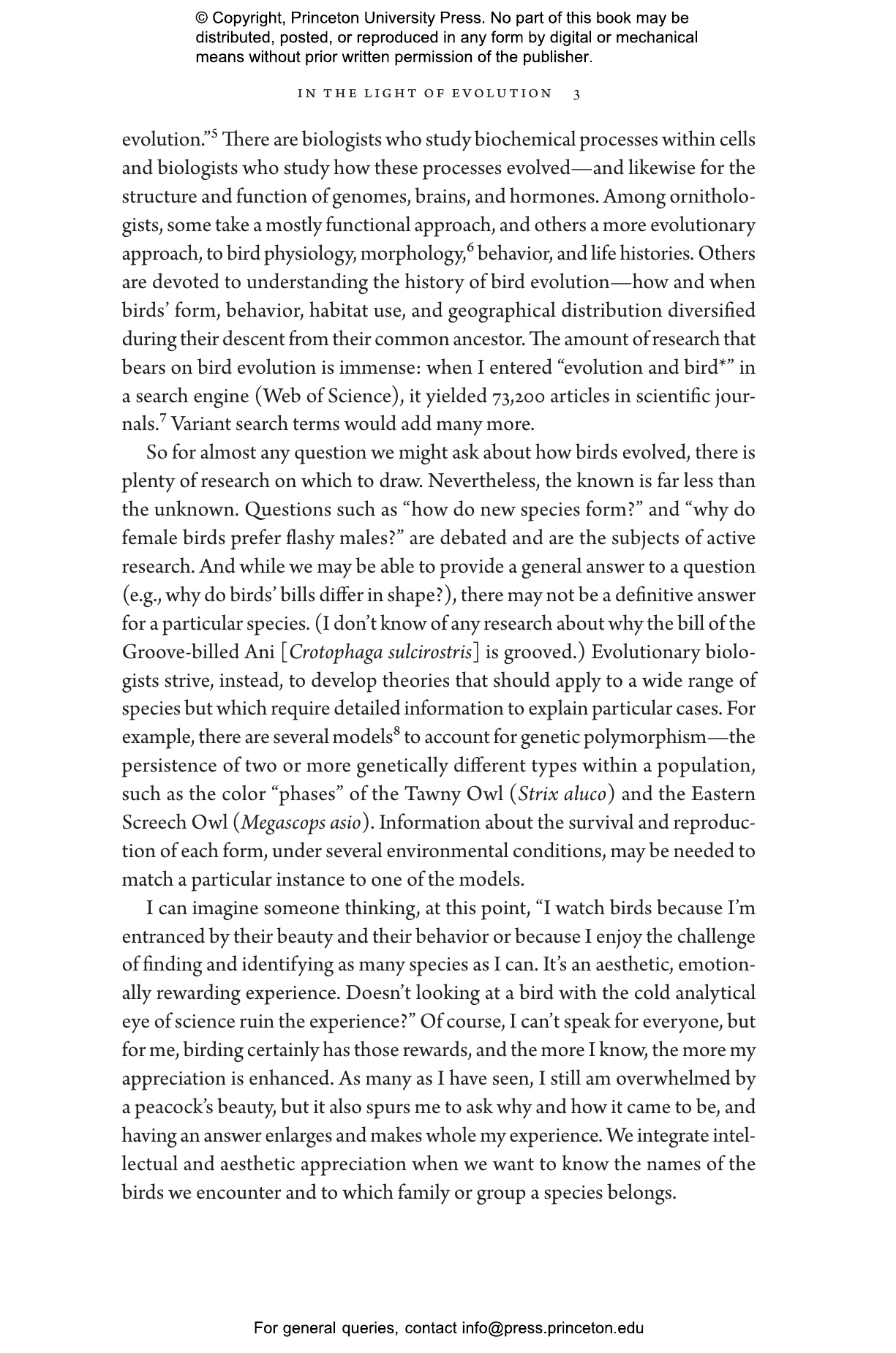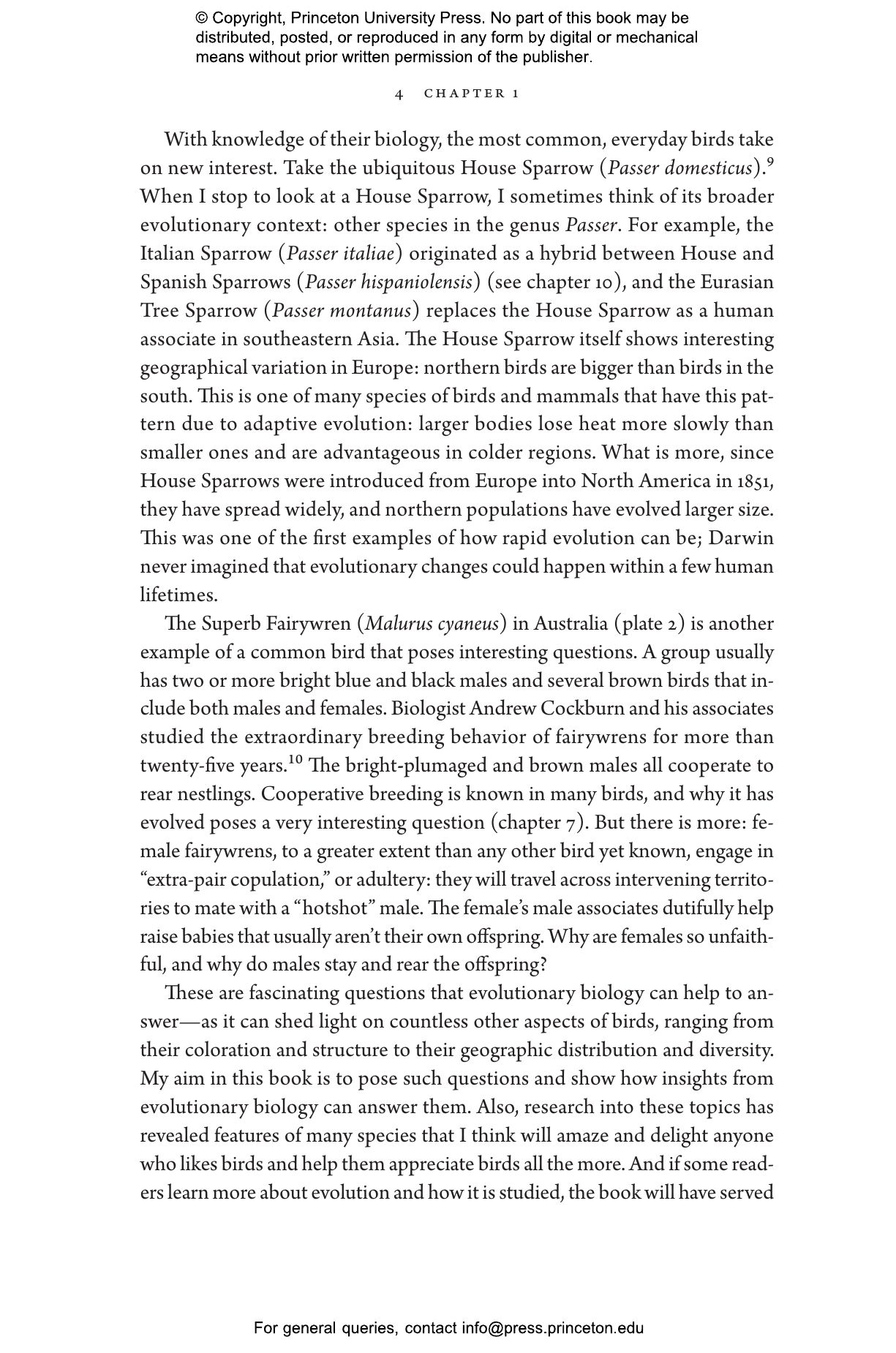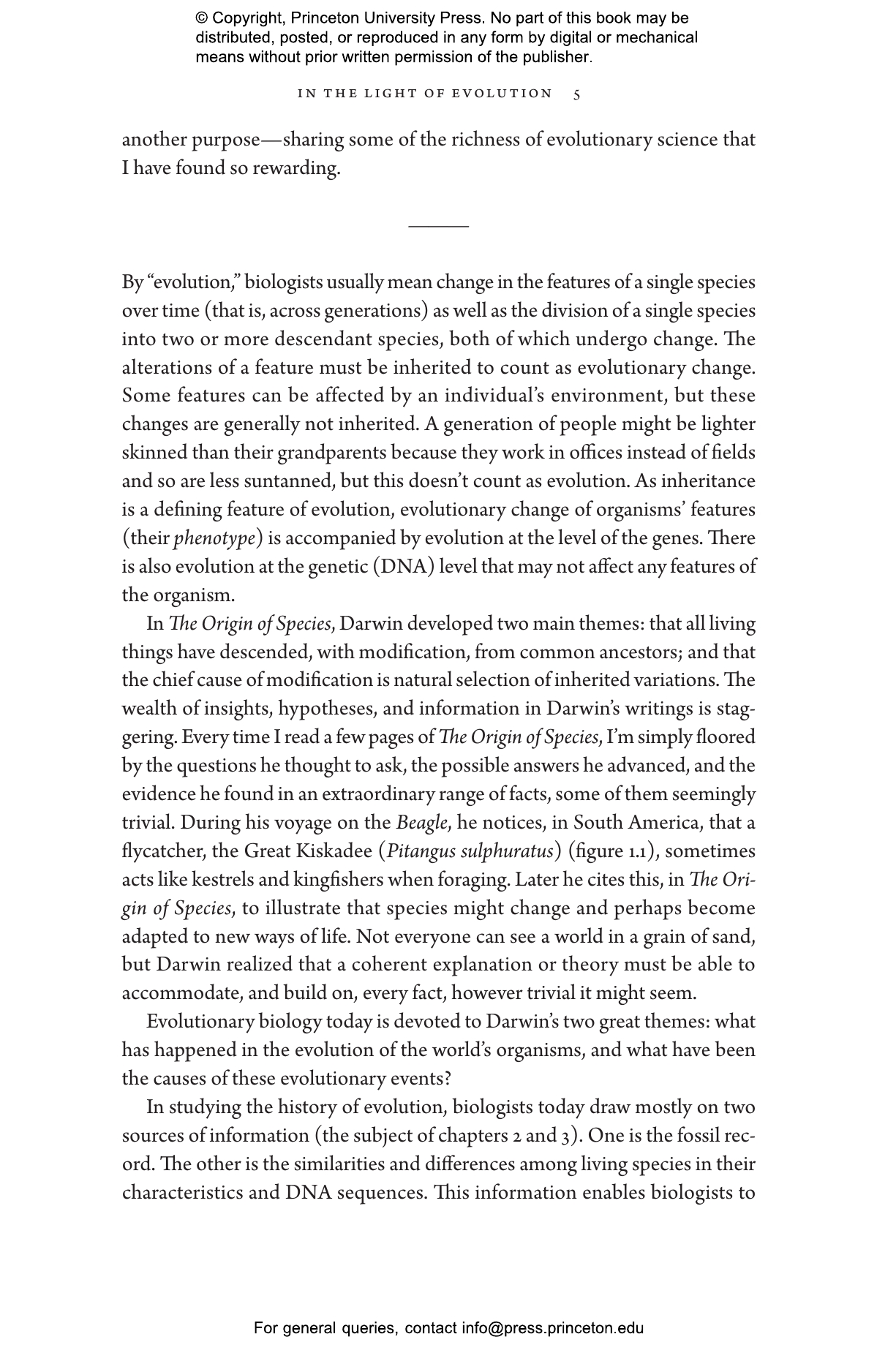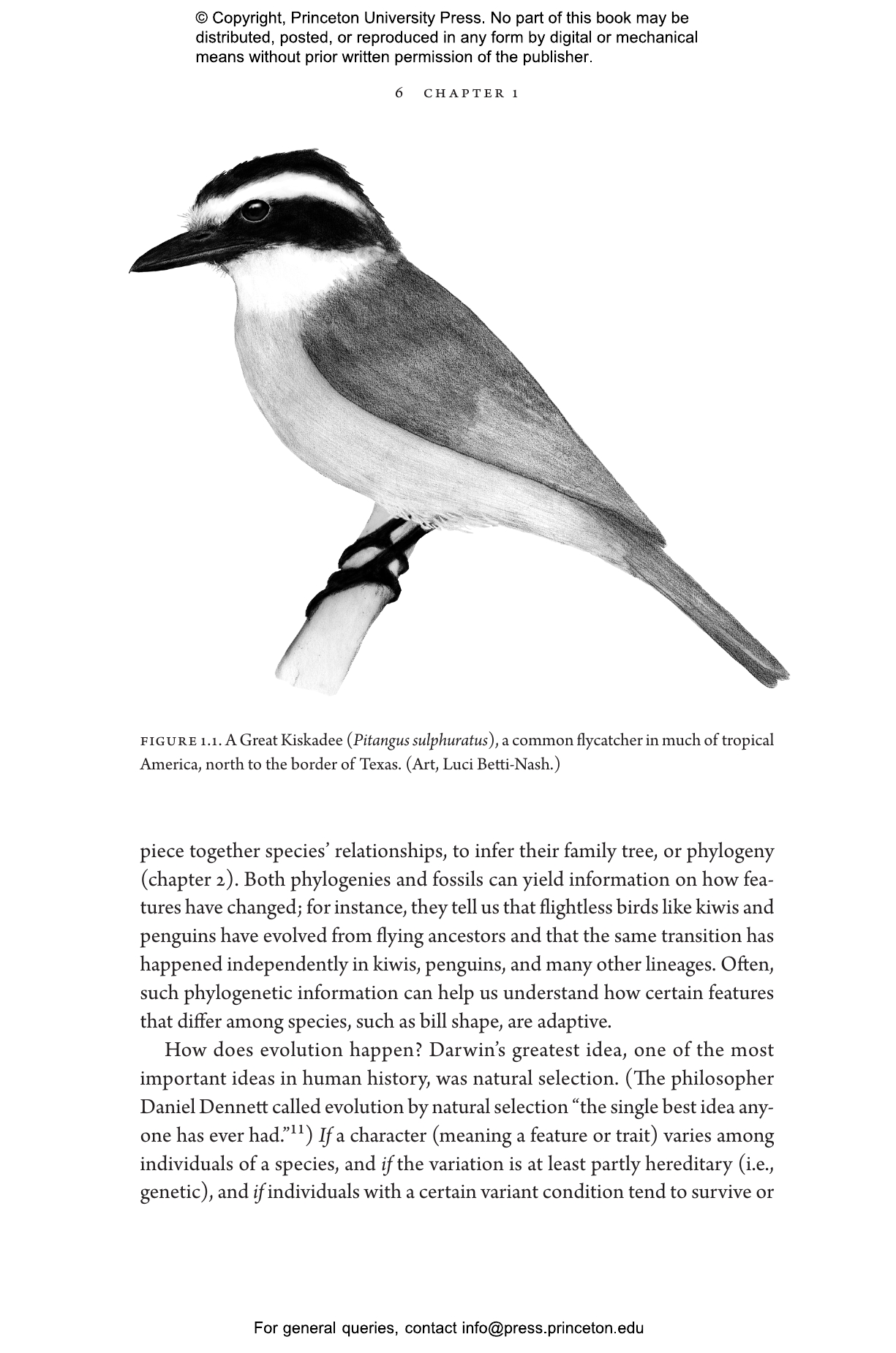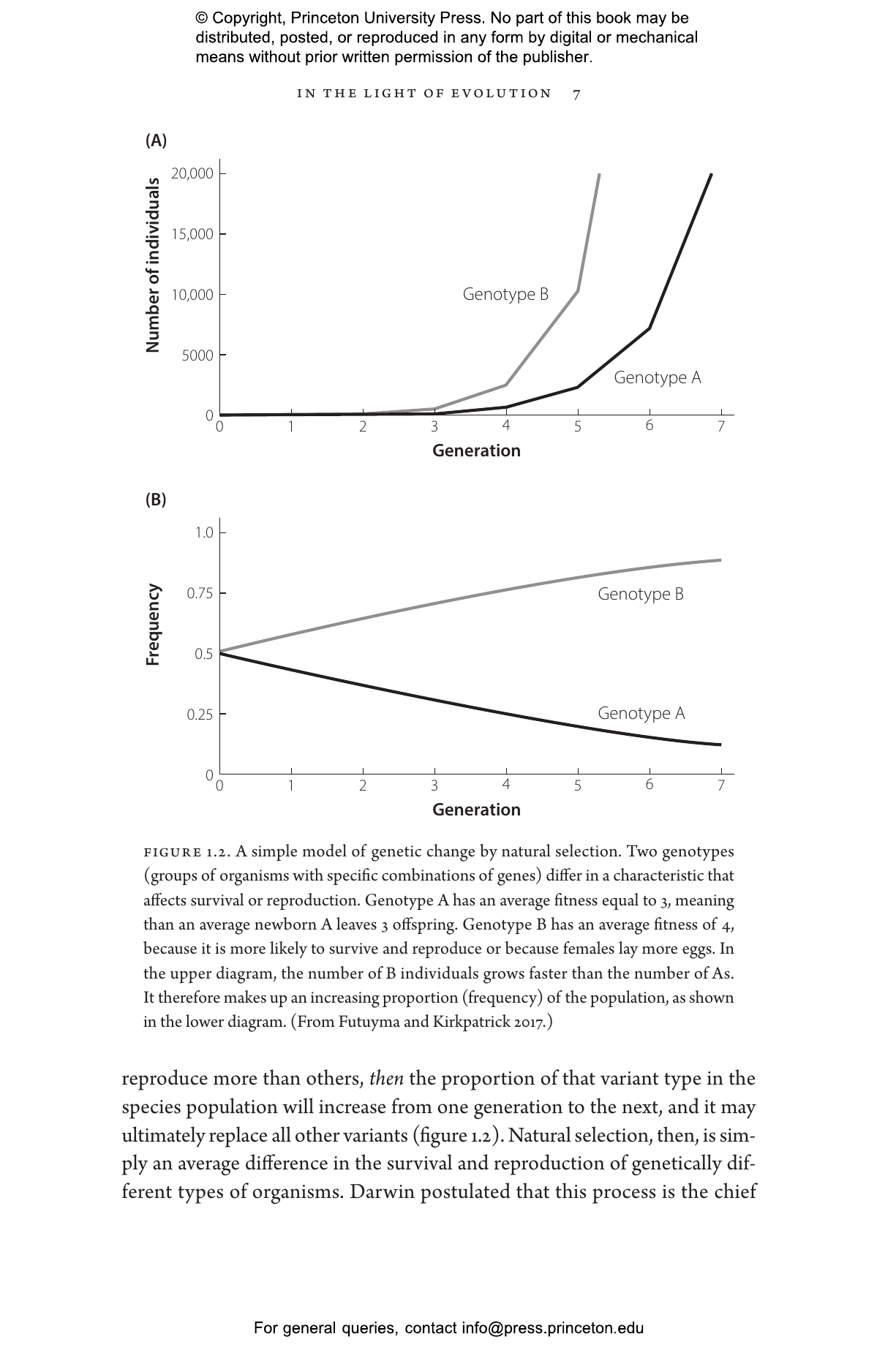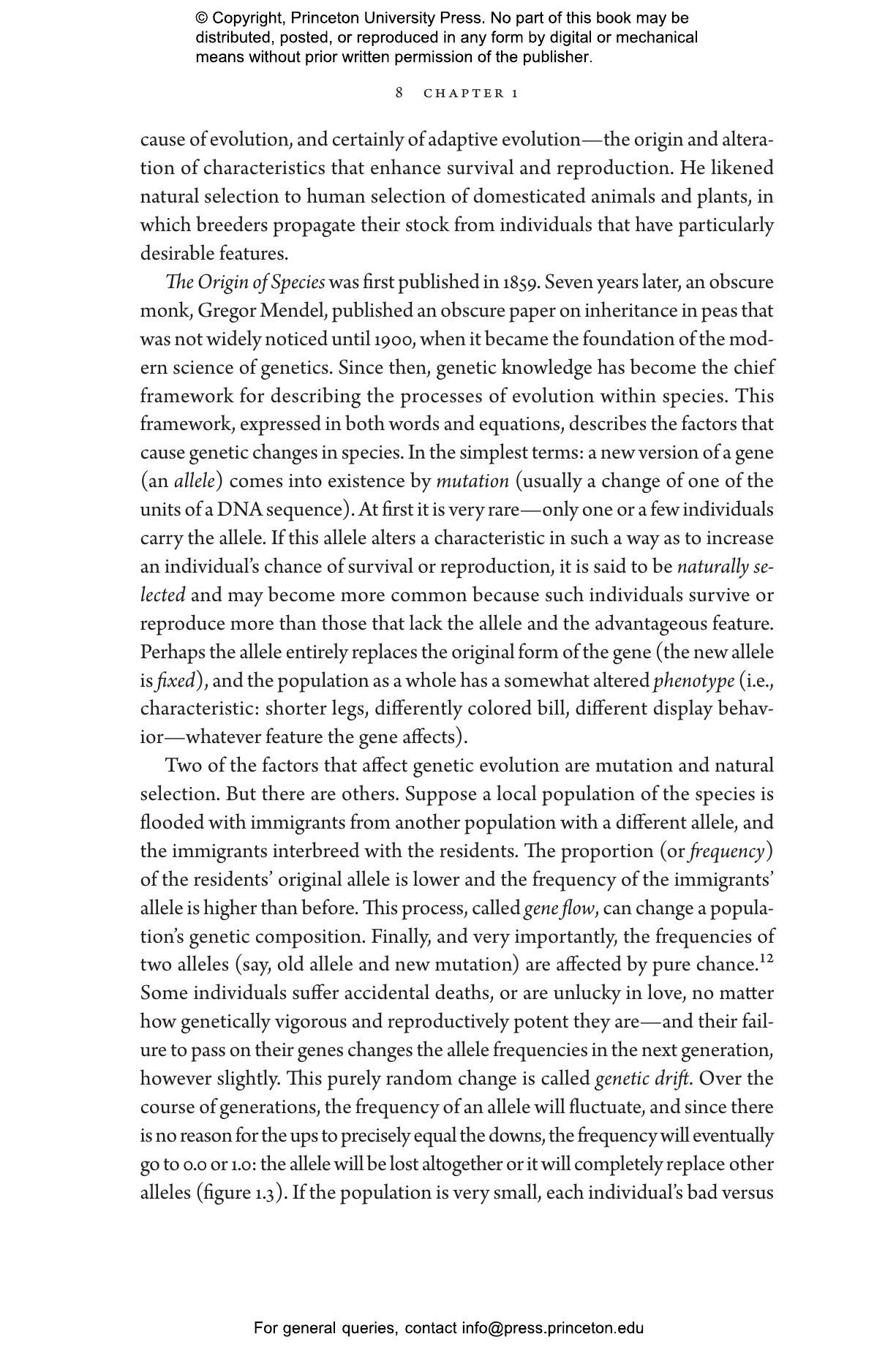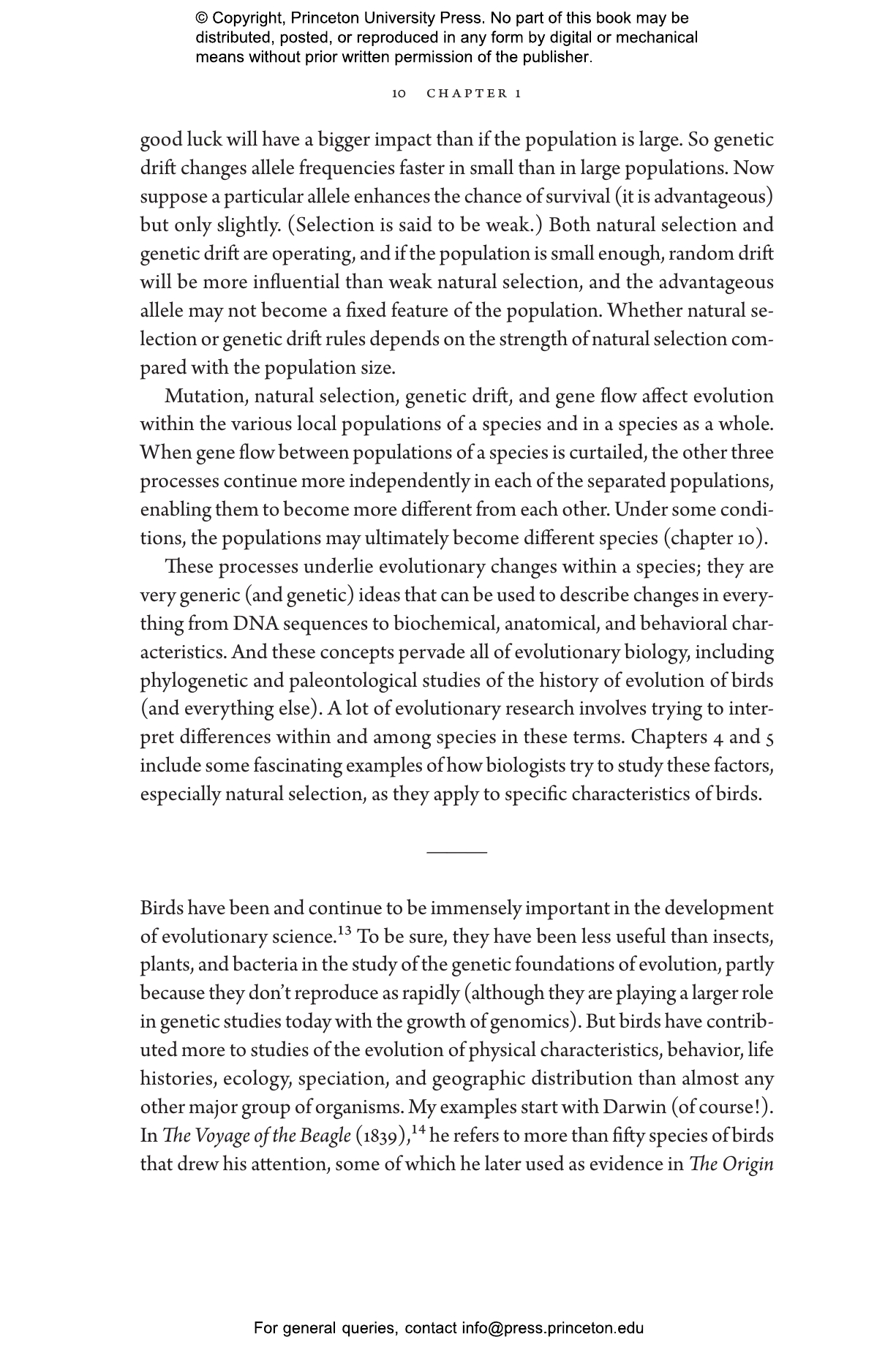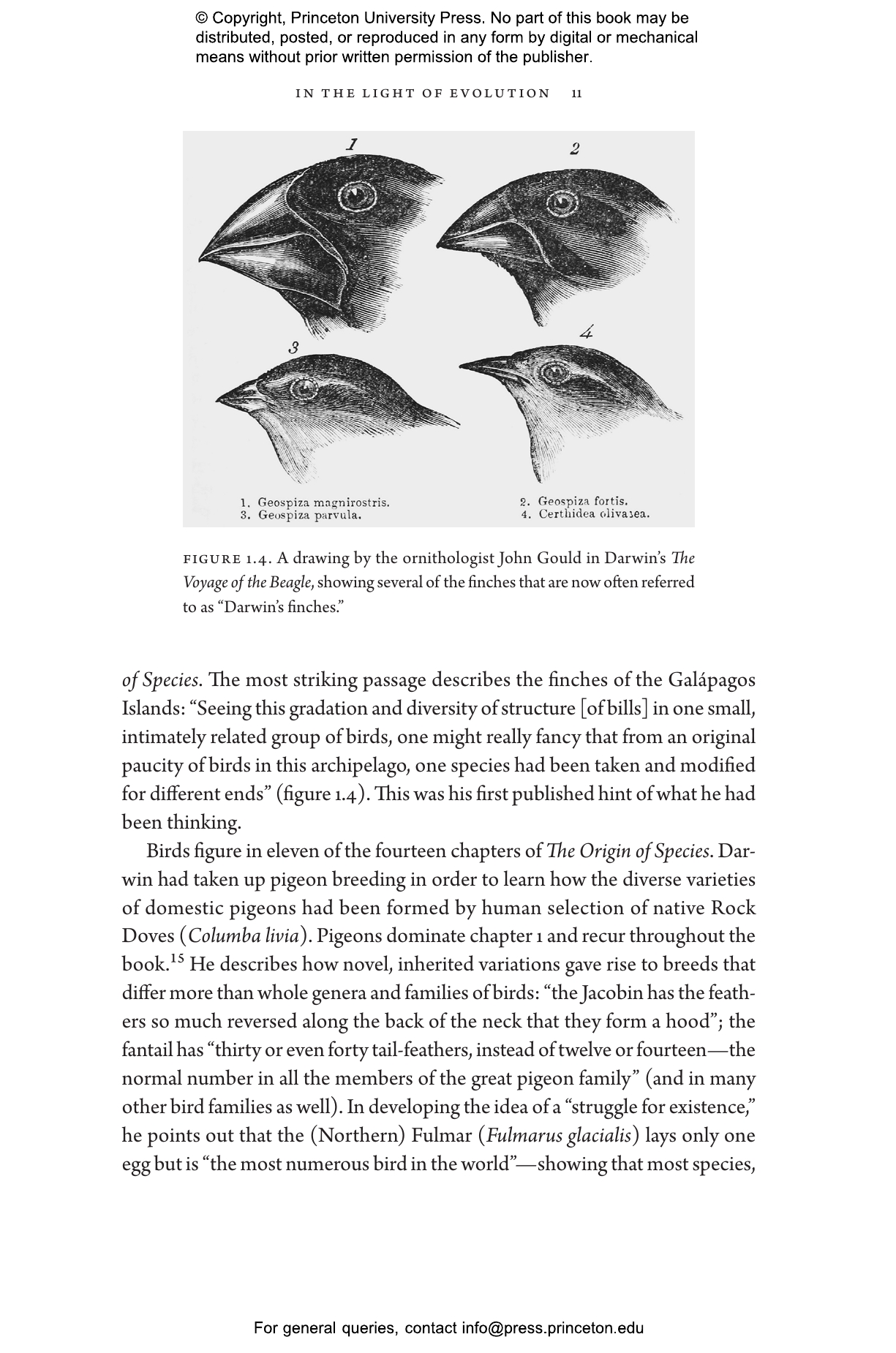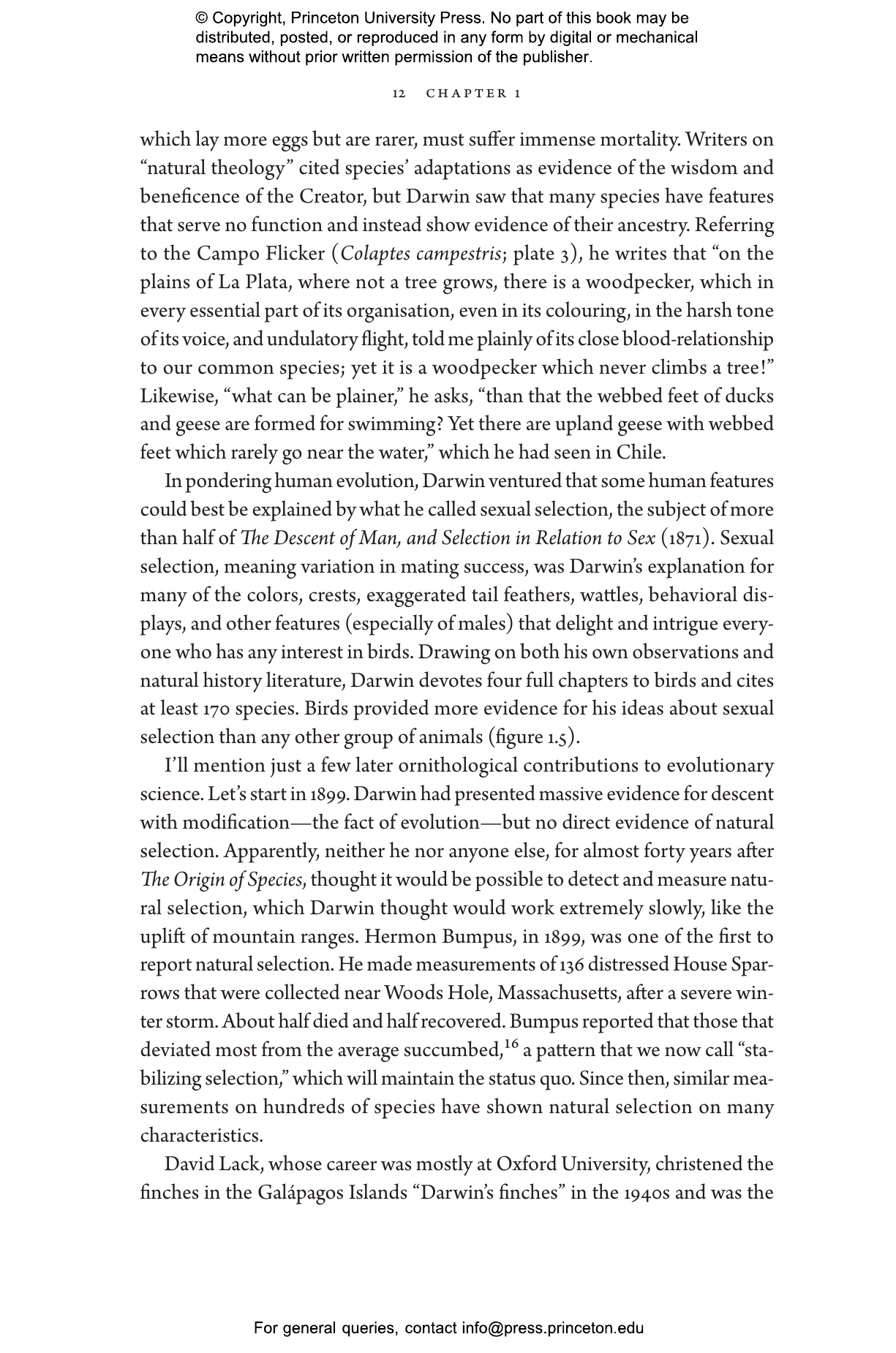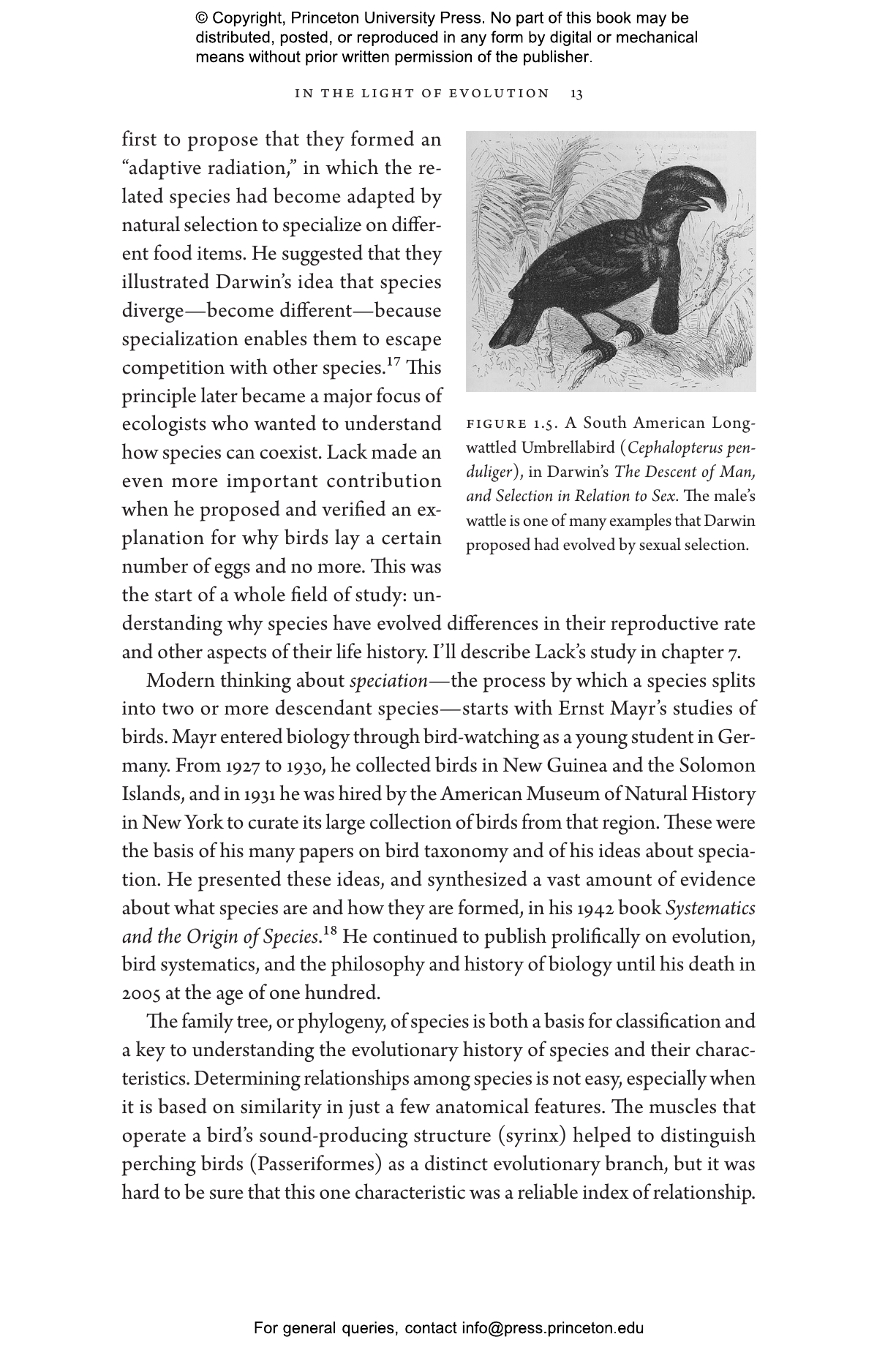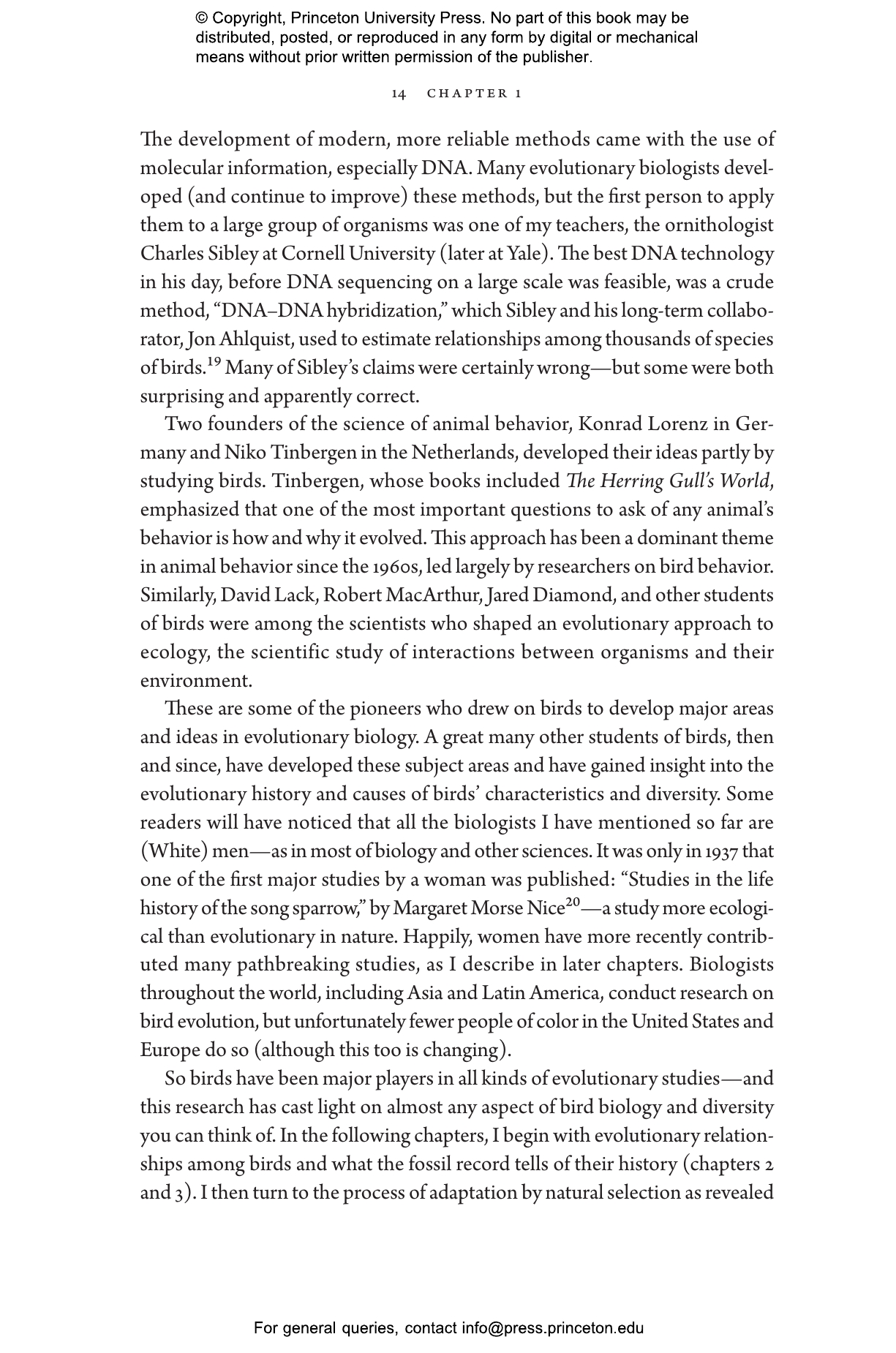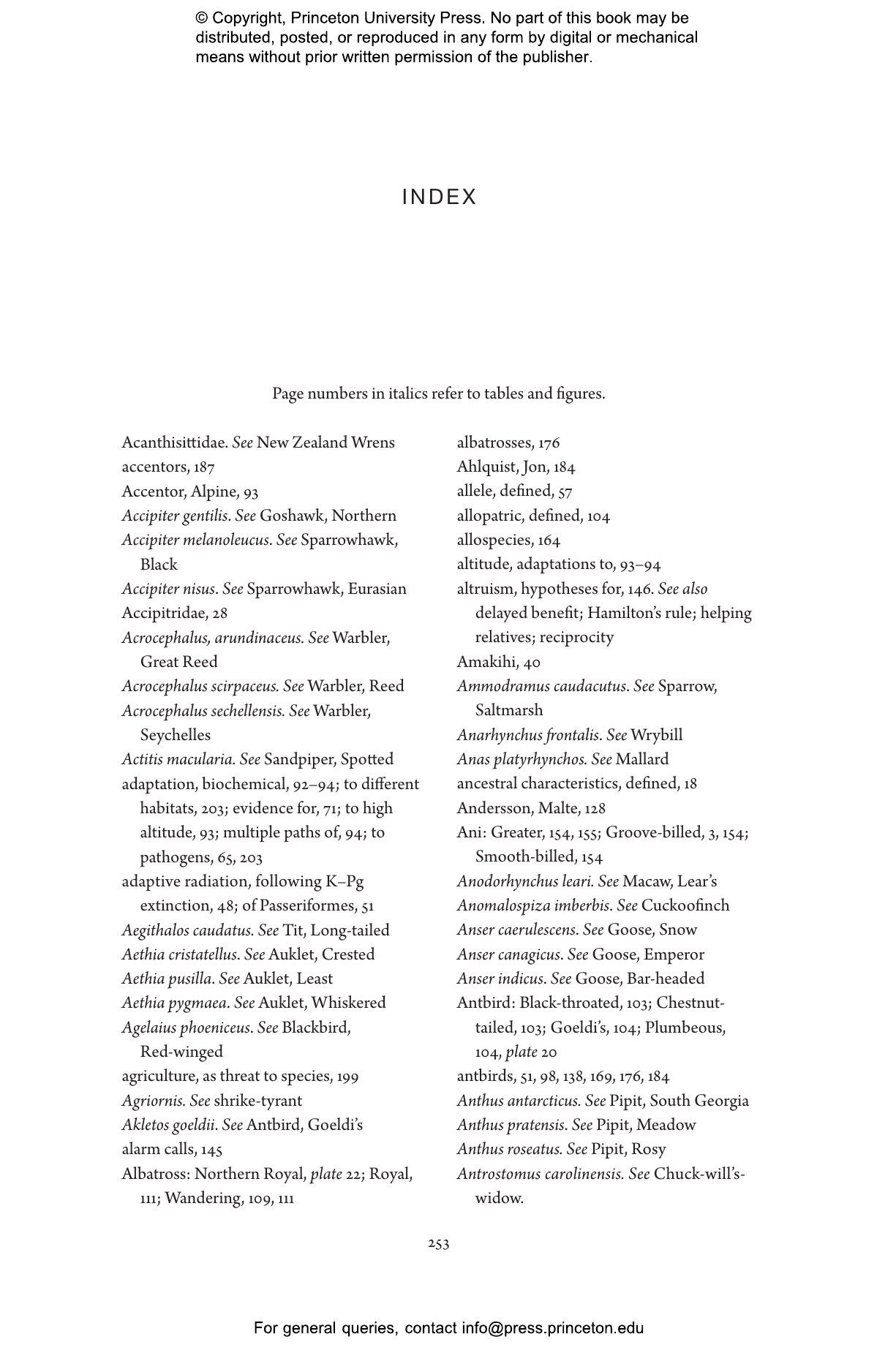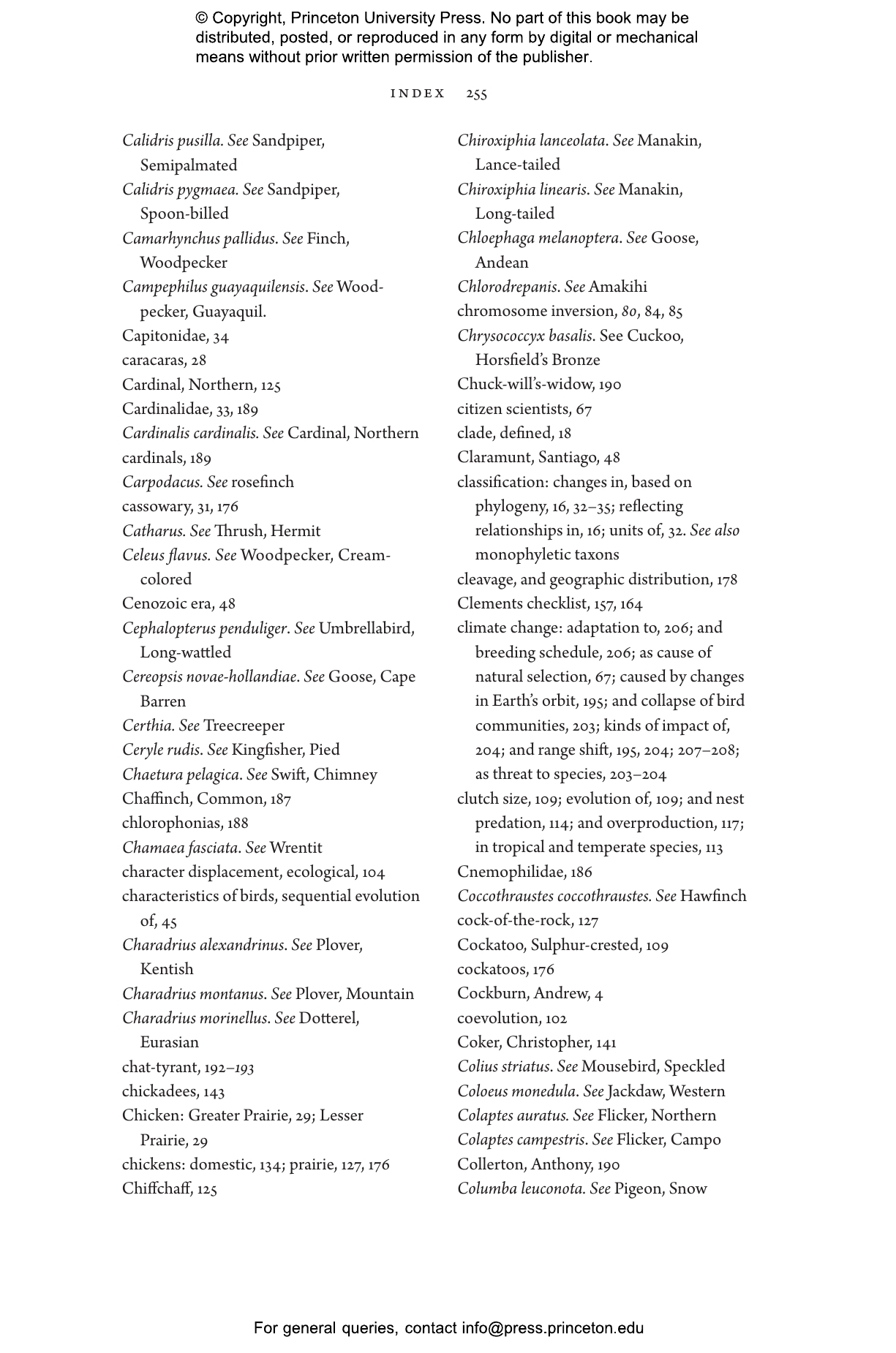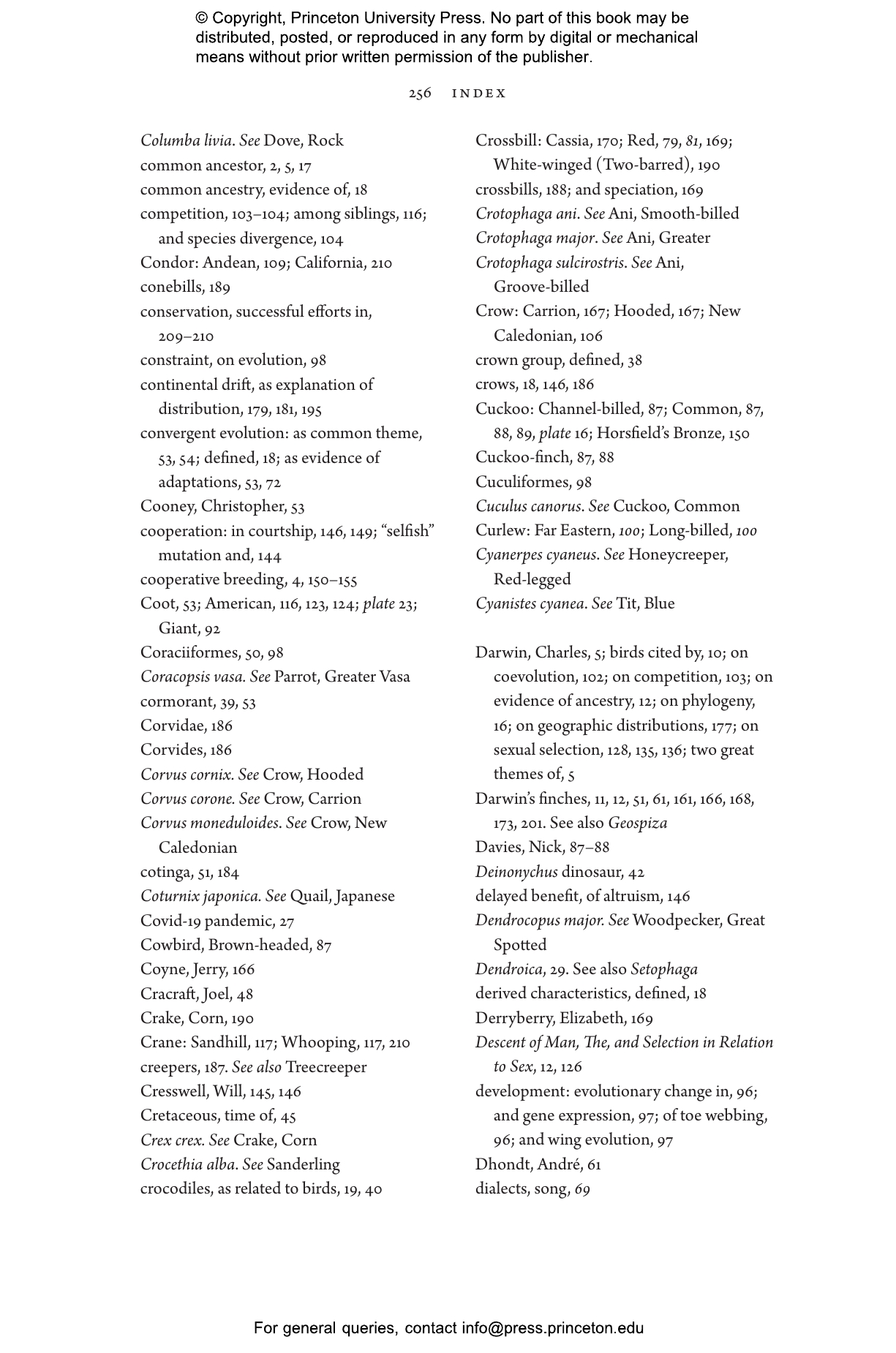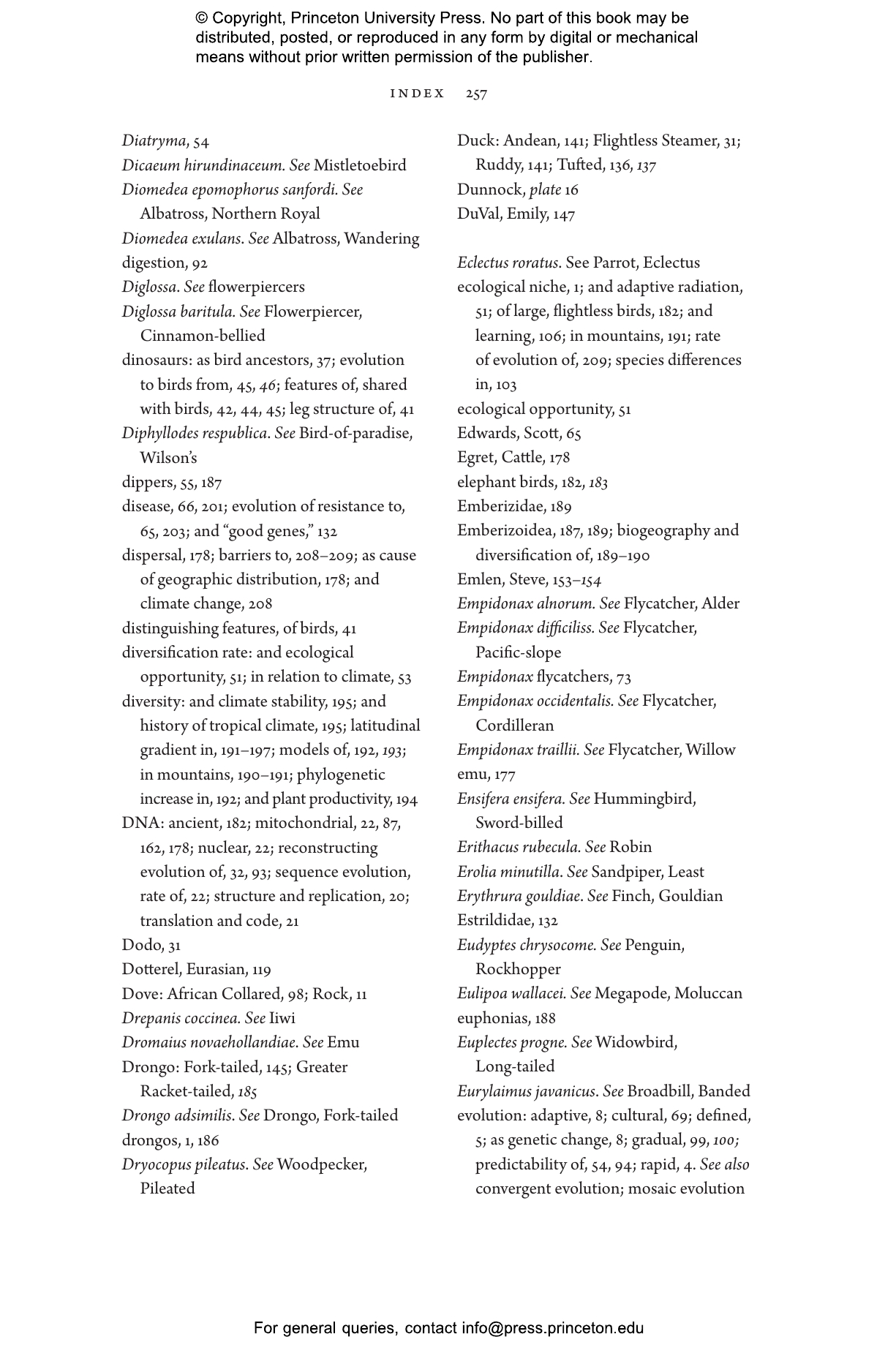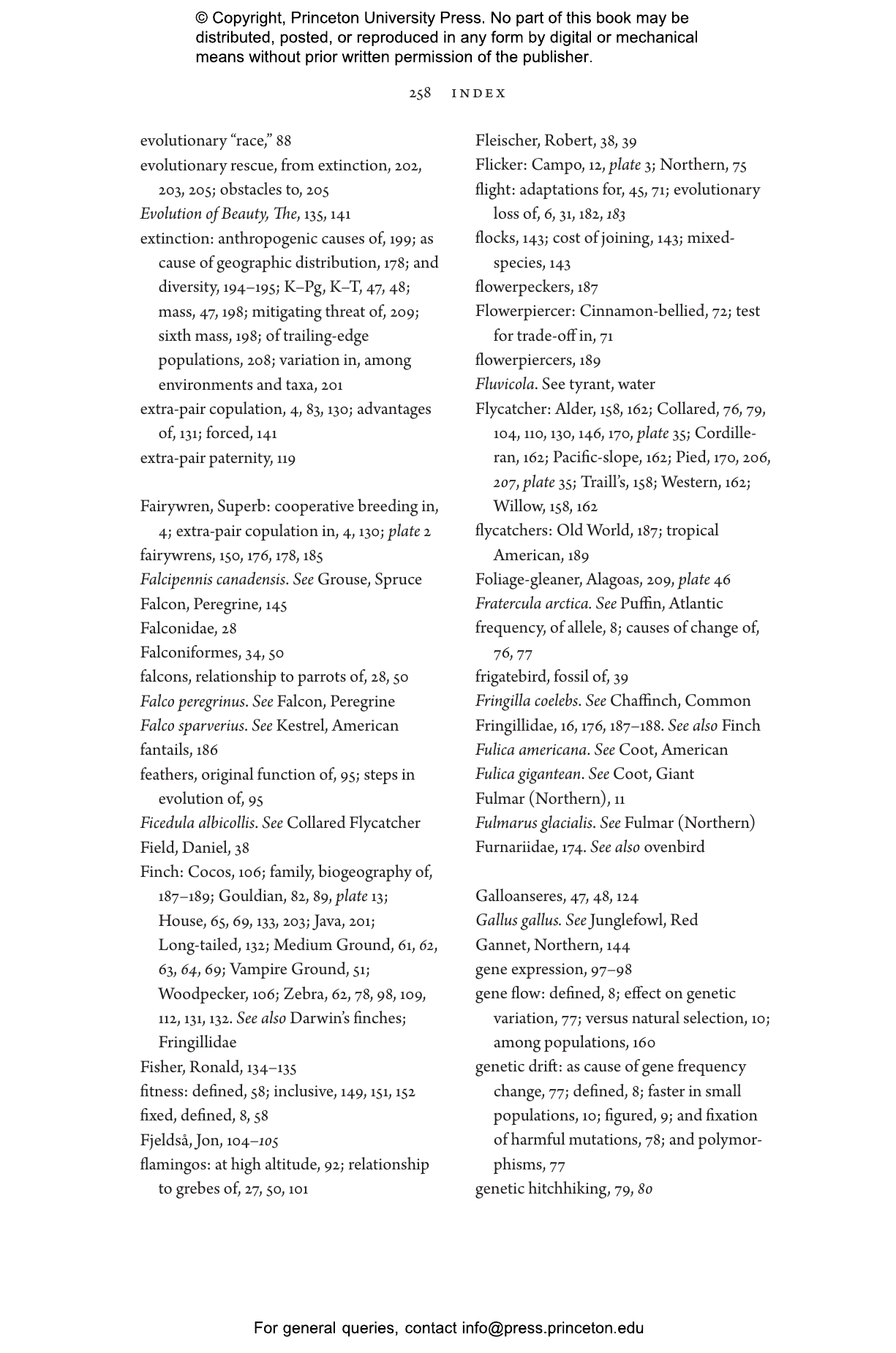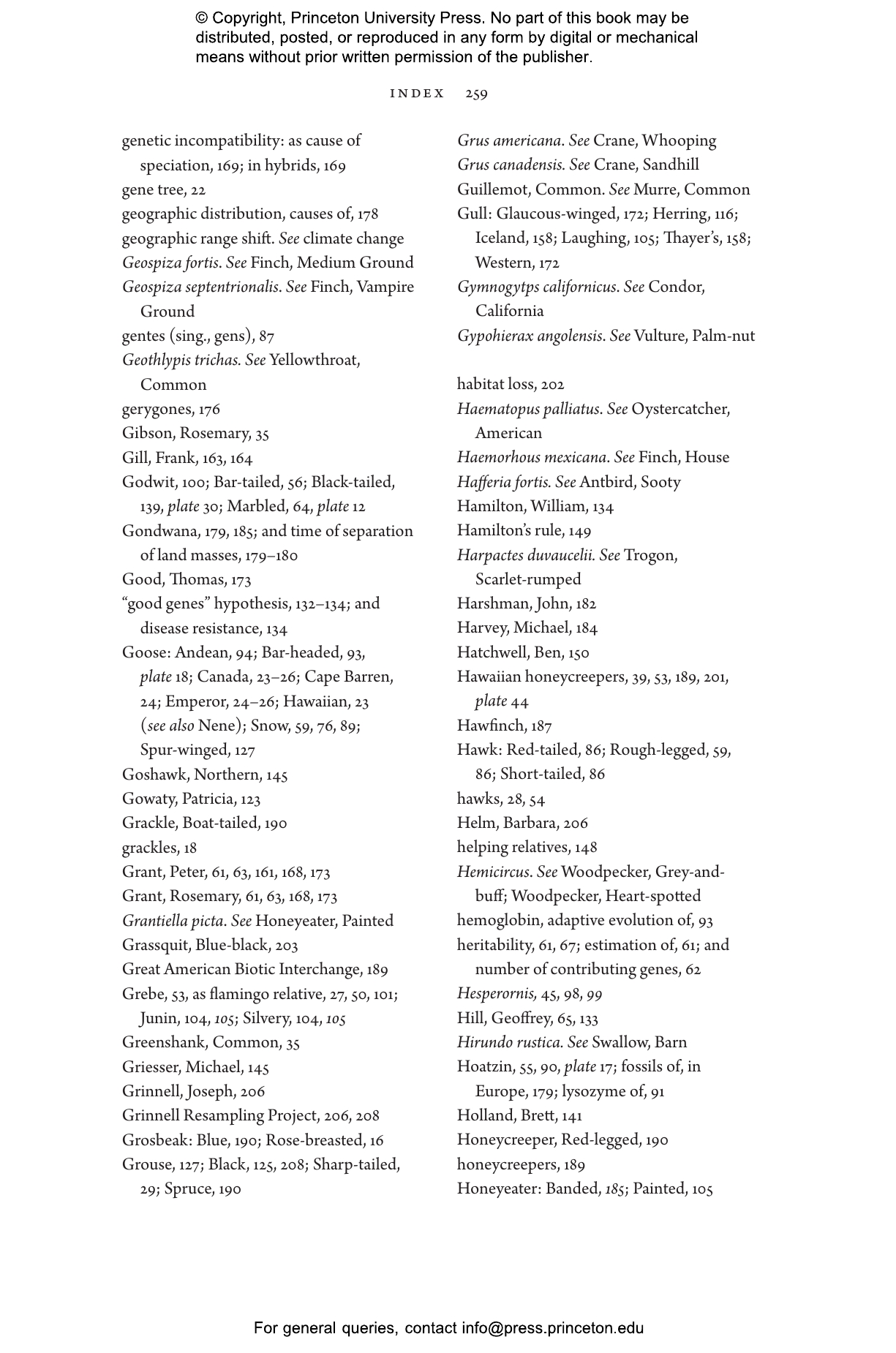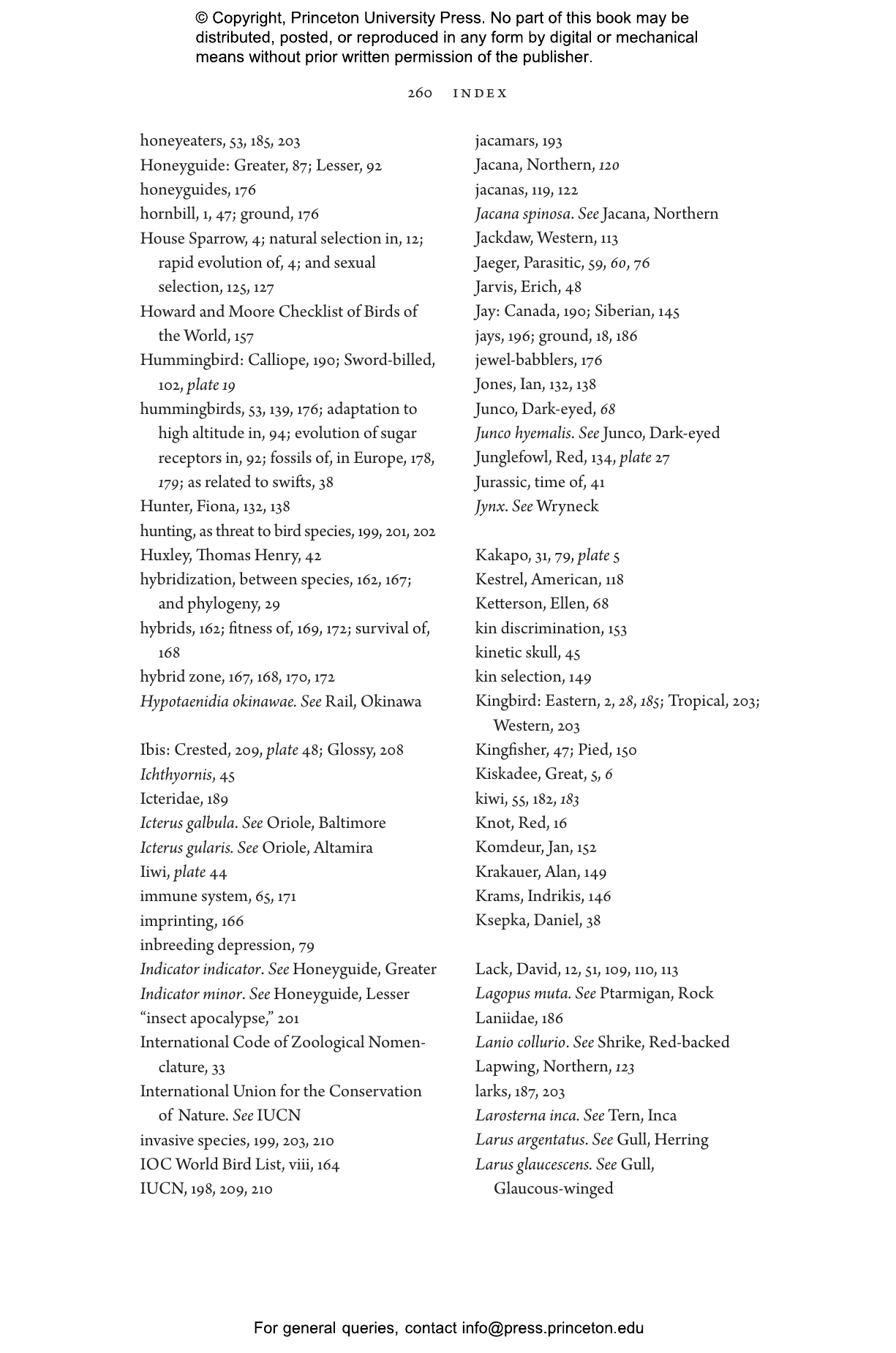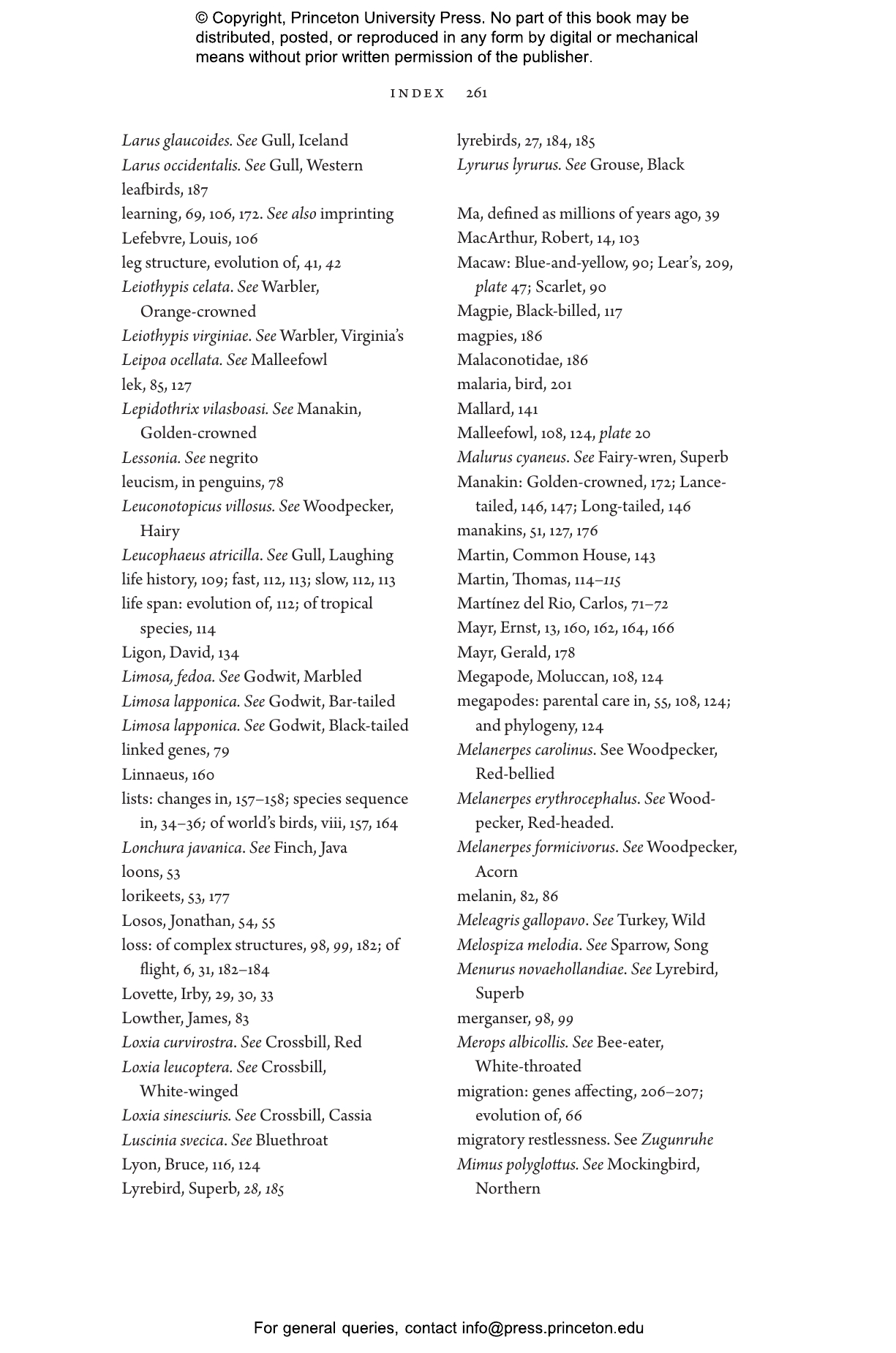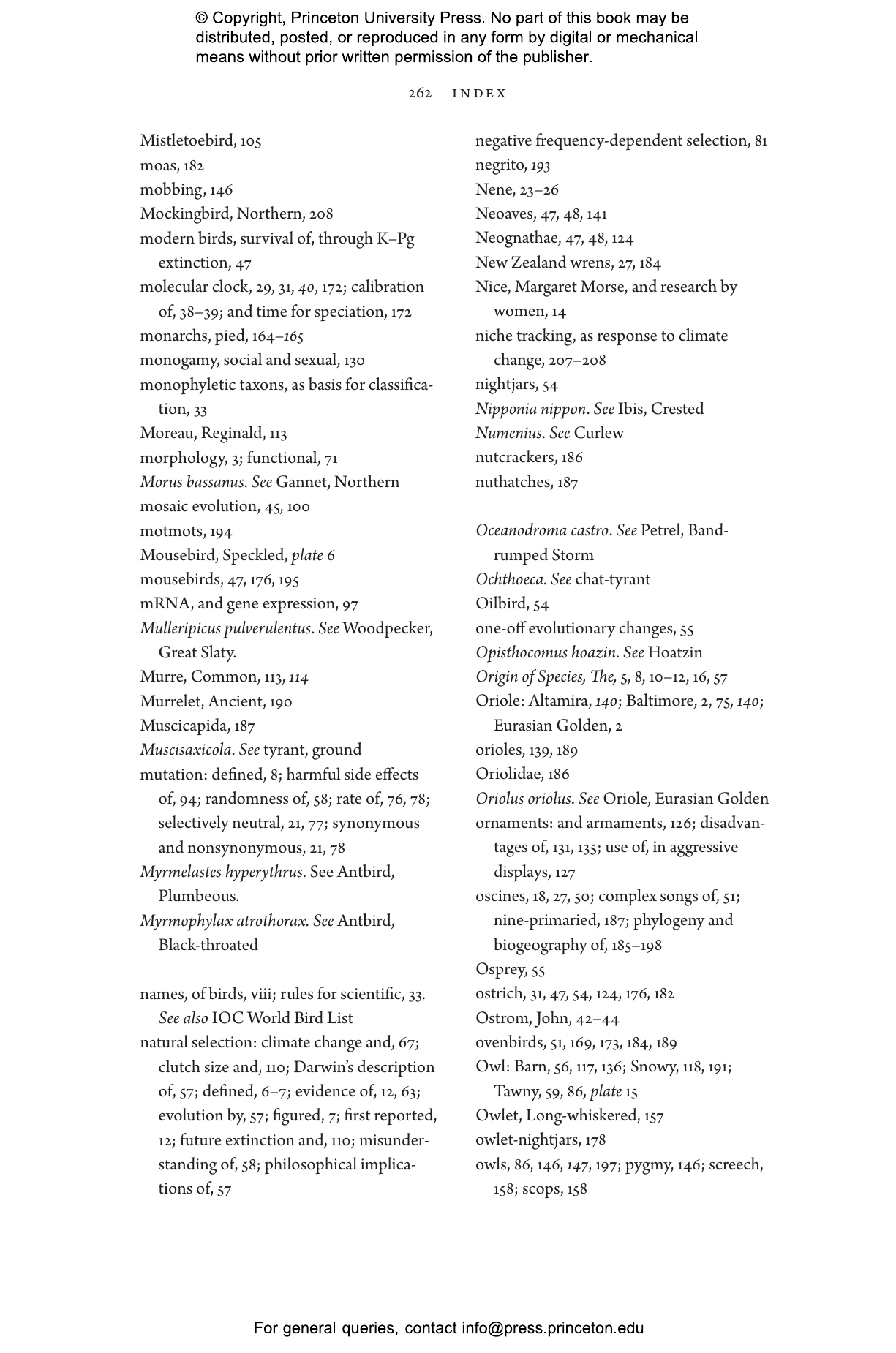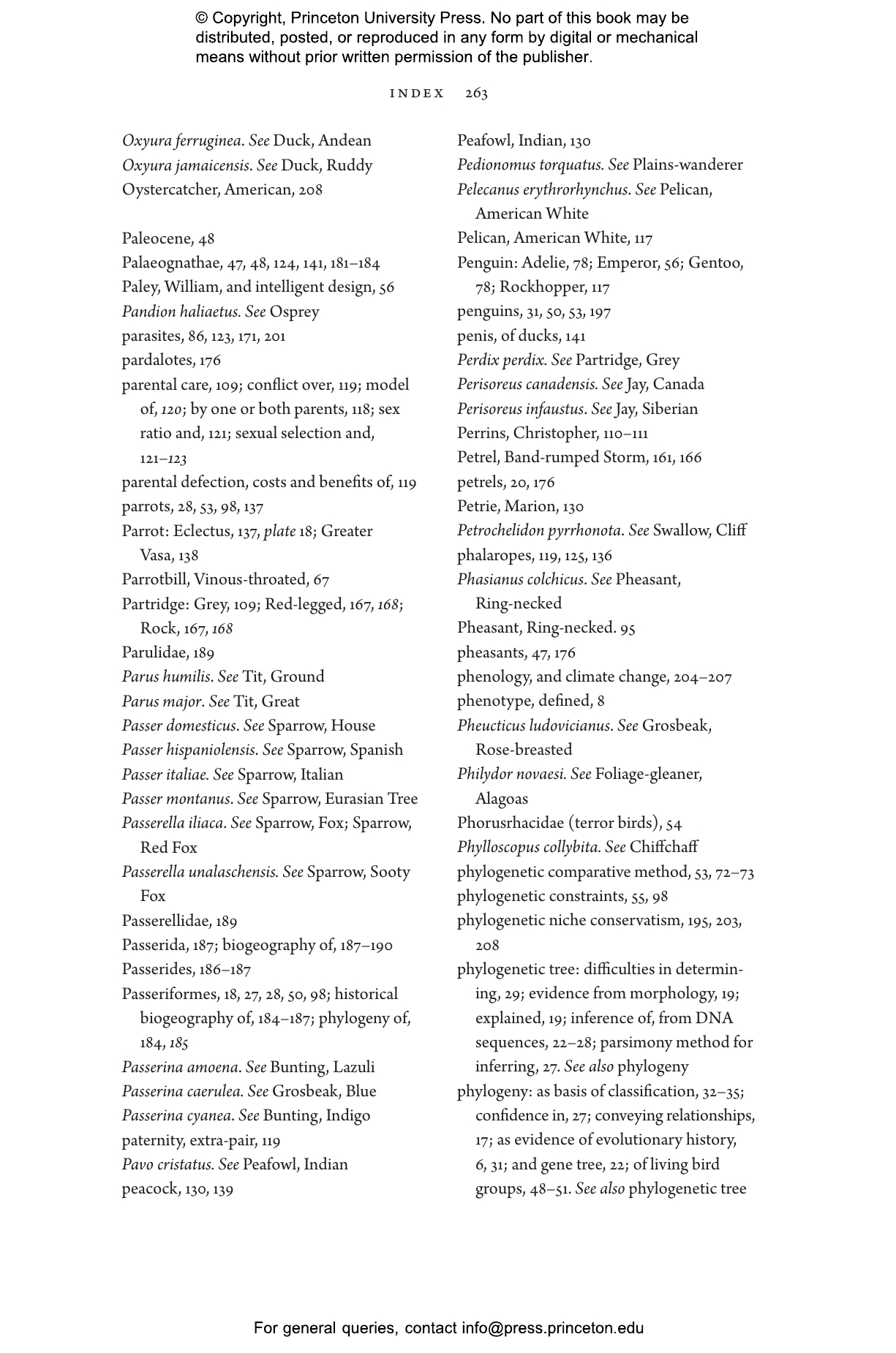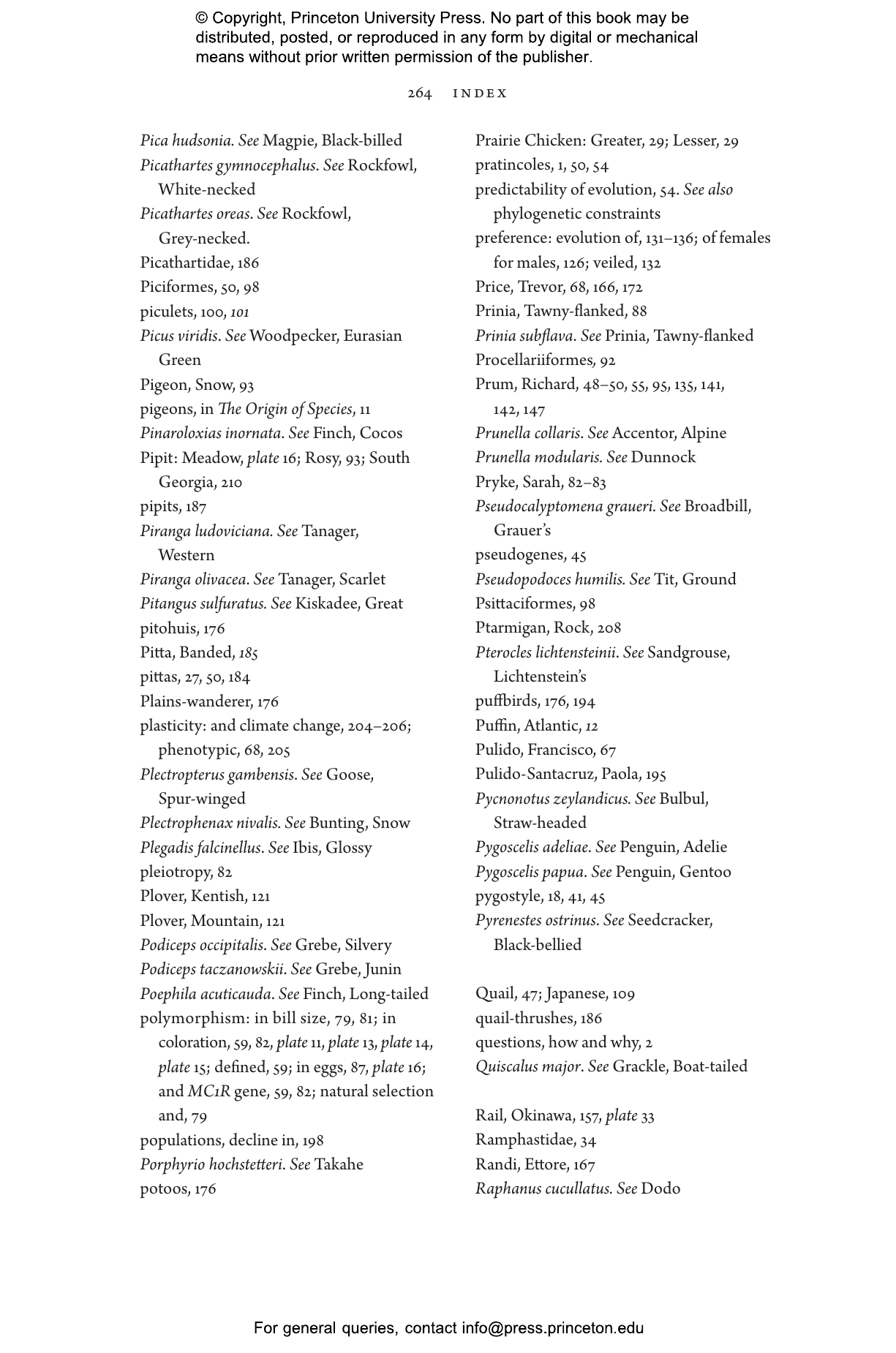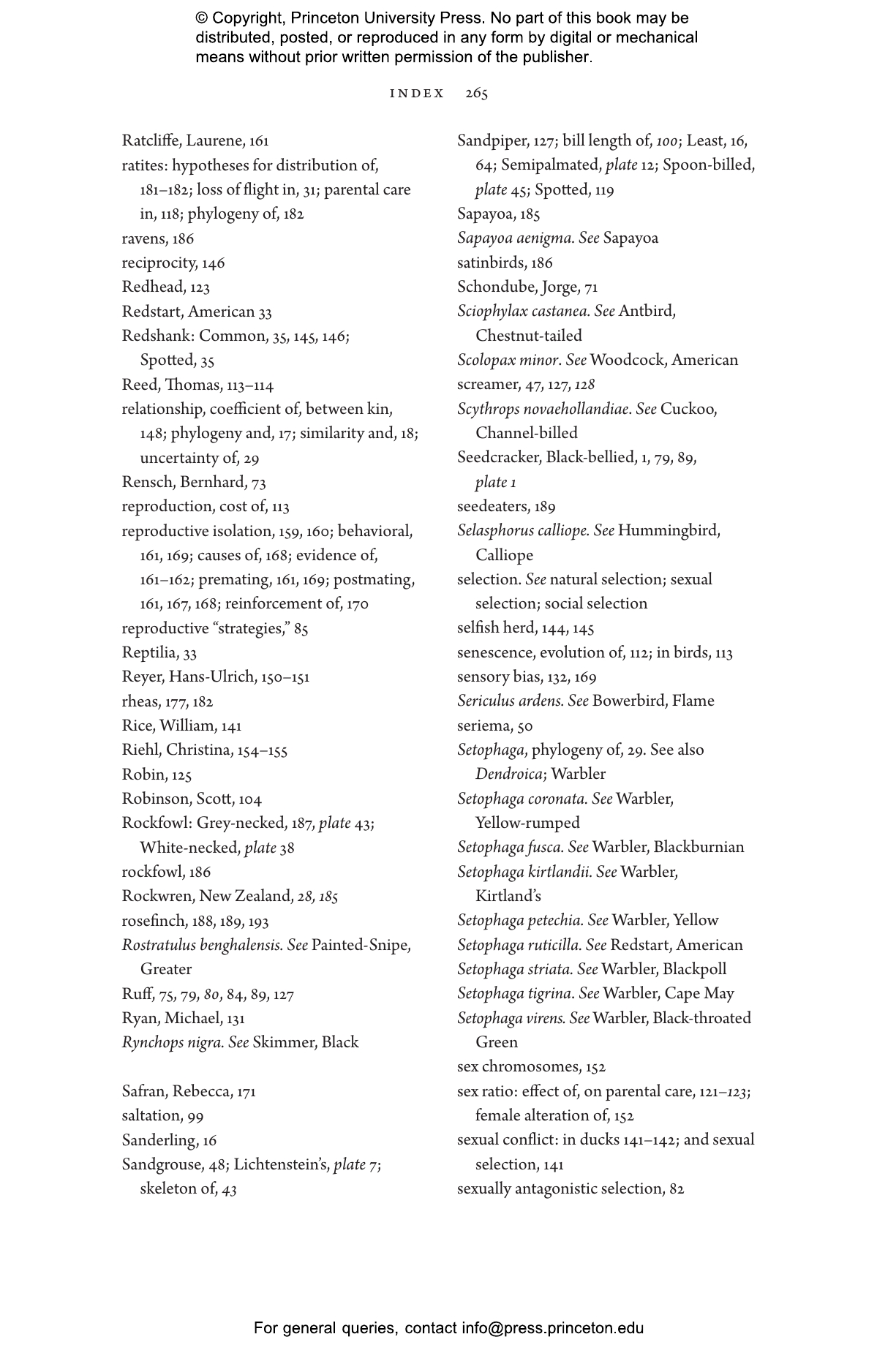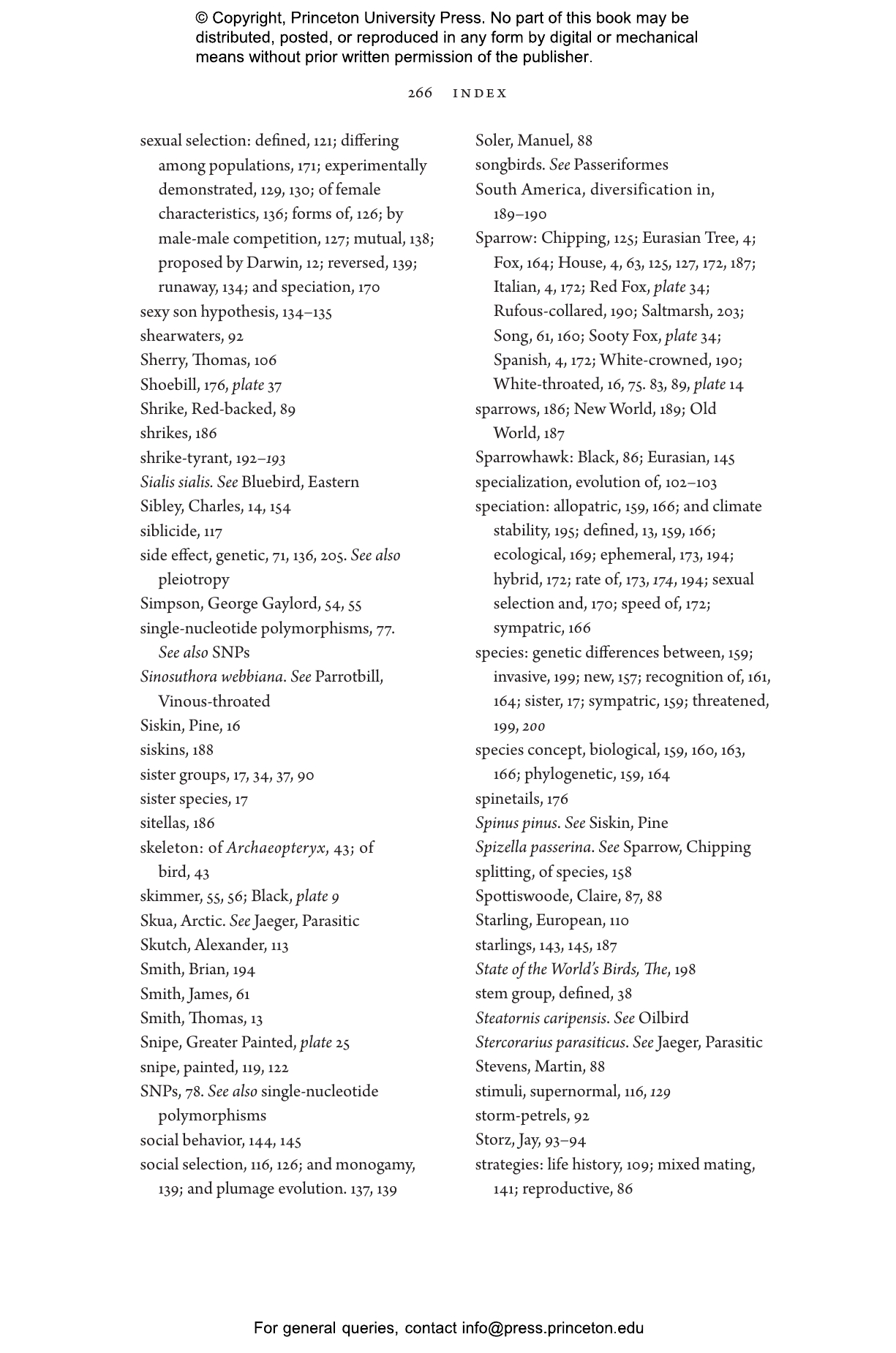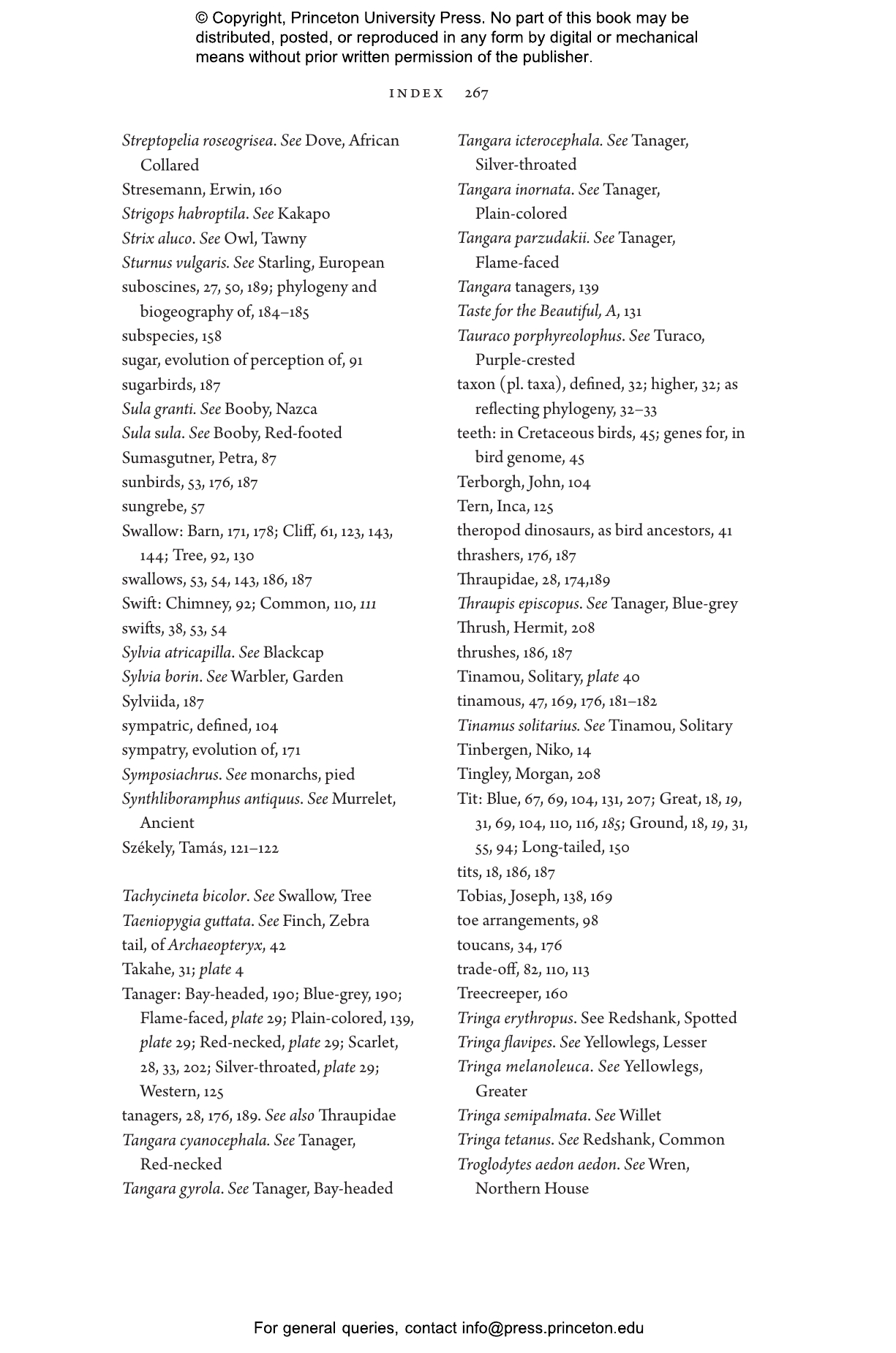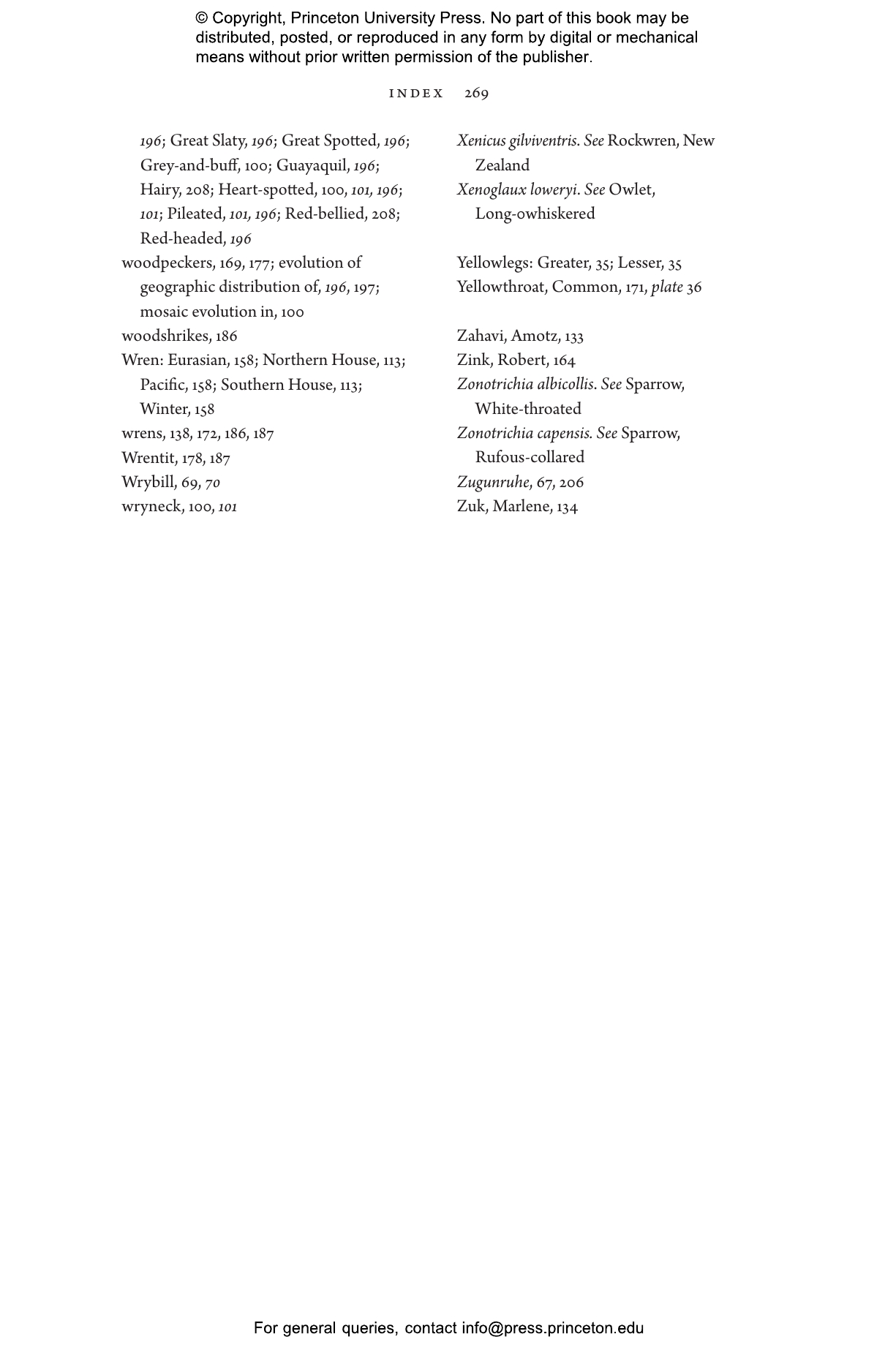How Birds Evolve explores how evolution has shaped the distinctive characteristics and behaviors we observe in birds today. Douglas Futuyma describes how evolutionary science illuminates the wonders of birds, ranging over topics such as the meaning and origin of species, the evolutionary history of bird diversity, and the evolution of avian reproductive behaviors, plumage ornaments, and social behaviors.
In this multifaceted book, Futuyma examines how birds evolved from nonavian dinosaurs and reveals what we can learn from the “family tree” of birds. He looks at the ways natural selection enables different forms of the same species to persist, and discusses how adaptation by natural selection accounts for the diverse life histories of birds and the rich variety of avian parenting styles, mating displays, and cooperative behaviors. He explains why some parts of the planet have so many more species than others, and asks what an evolutionary perspective brings to urgent questions about bird extinction and habitat destruction. Along the way, Futuyma provides an insider’s perspective on how biologists practice evolutionary science, from studying the fossil record to comparing DNA sequences among and within species.
A must-read for bird enthusiasts and curious naturalists, How Birds Evolve shows how evolutionary biology helps us better understand birds and their natural history, and how the study of birds has informed all aspects of evolutionary science since the time of Darwin.
Awards and Recognition
- A Birdwatcher's Yearbook Best Bird Book of the Year
Douglas J. Futuyma is Distinguished Professor Emeritus in the Department of Ecology and Evolution at Stony Brook University, State University of New York. His books include Evolution and Science on Trial: The Case for Evolution. He is a member of the American Academy of Arts and Sciences and the National Academy of Sciences.
"Terrific. . . . Futuyma writes an accessible overview of bird evolution that lay readers, especially birders, will be able to understand."—BirdWatching
"[Futuyma] skillfully weaves together salient themes of evolutionary biology from the living aviary, stressing the important role that birds played in advancing our understanding of evolution."—Alan Feduccia, Science
"This engaging and wide-ranging summary of virtually every aspect of avian evolution synthesizes the earliest insights from Darwin to those of modern phylogenetics, using birds to illustrate each concept. ... [Futuyma] may be the ideal person to explain the marvels of bird evolution."—Daniel S. Cooper, The Quarterly Review of Biology
"How Birds Evolve is accessible, exhilarating science for everyone – amateur birder, professional naturalist or just the average man. It’s a great book and one to read over and over and I thoroughly recommend it to all. This is already my Bird Book of 2022 and I can't see it being bettered."—Phil Slade, Another Bird Blog
"How Birds Evolve is a book full of accessible and exhilarating science for everyone and not just birders and professional naturalists. It’s simply a stunning book and one to read numerous times and an example of the amalgamation of science and nature writing at its finest and I thoroughly recommend it to everyone."—Roy Stewart, British Naturalists Association
"The delight is in the detail. . . . Futuyma unpacks the story of evolutionary science alongside the story of how birds evolved. . . . [How Birds Evolve] is entertaining and passionate."—Simon Ings, New Scientist
"[Futuyma’s] life-long passion and competence guide us across the pages of this book with a hint of humour."—Gaia Bazz, Community Ecology
“A must-read for birders and biologists alike. Douglas Futuyma has written a brilliant synthesis of the evolutionary dynamics of world birds.”—Frank B. Gill, coauthor of Ornithology
“For any bird-watcher intrigued by the multiplicity of colors, forms, and behaviors of birds, this book provides thought-provoking insights into how and why such diversity arose and is maintained. Written by a renowned evolutionary biologist, How Birds Evolve will not only enlighten bird aficionados but will inspire readers to transfer this knowledge to other organisms and encourage us all to conserve the unique biodiversity of our fragile planet.”—B. Rosemary Grant, coauthor of 40 Years of Evolution: Darwin’s Finches on Daphne Major Island


